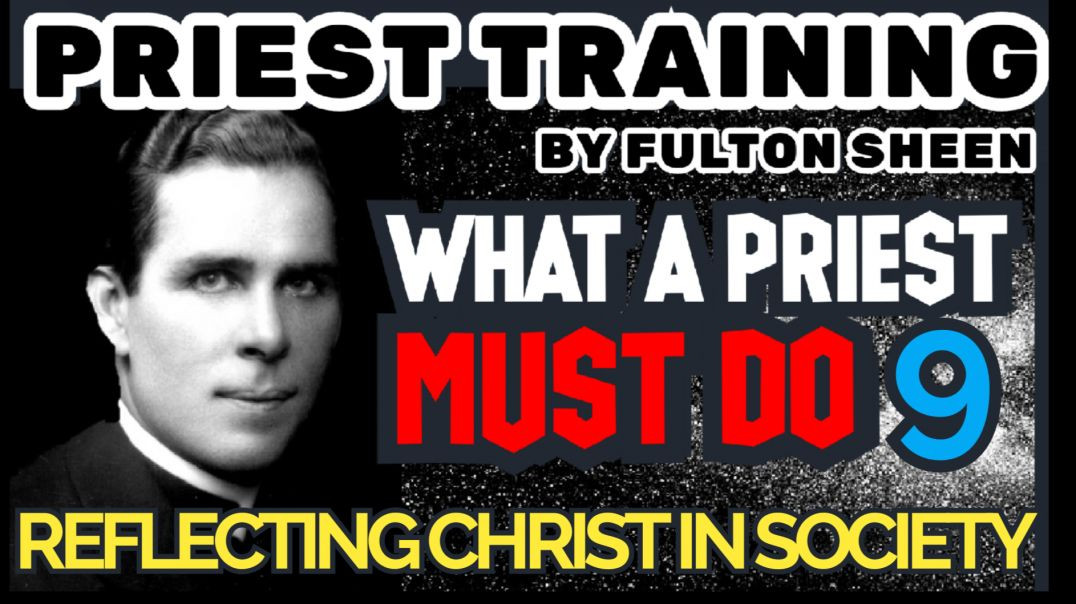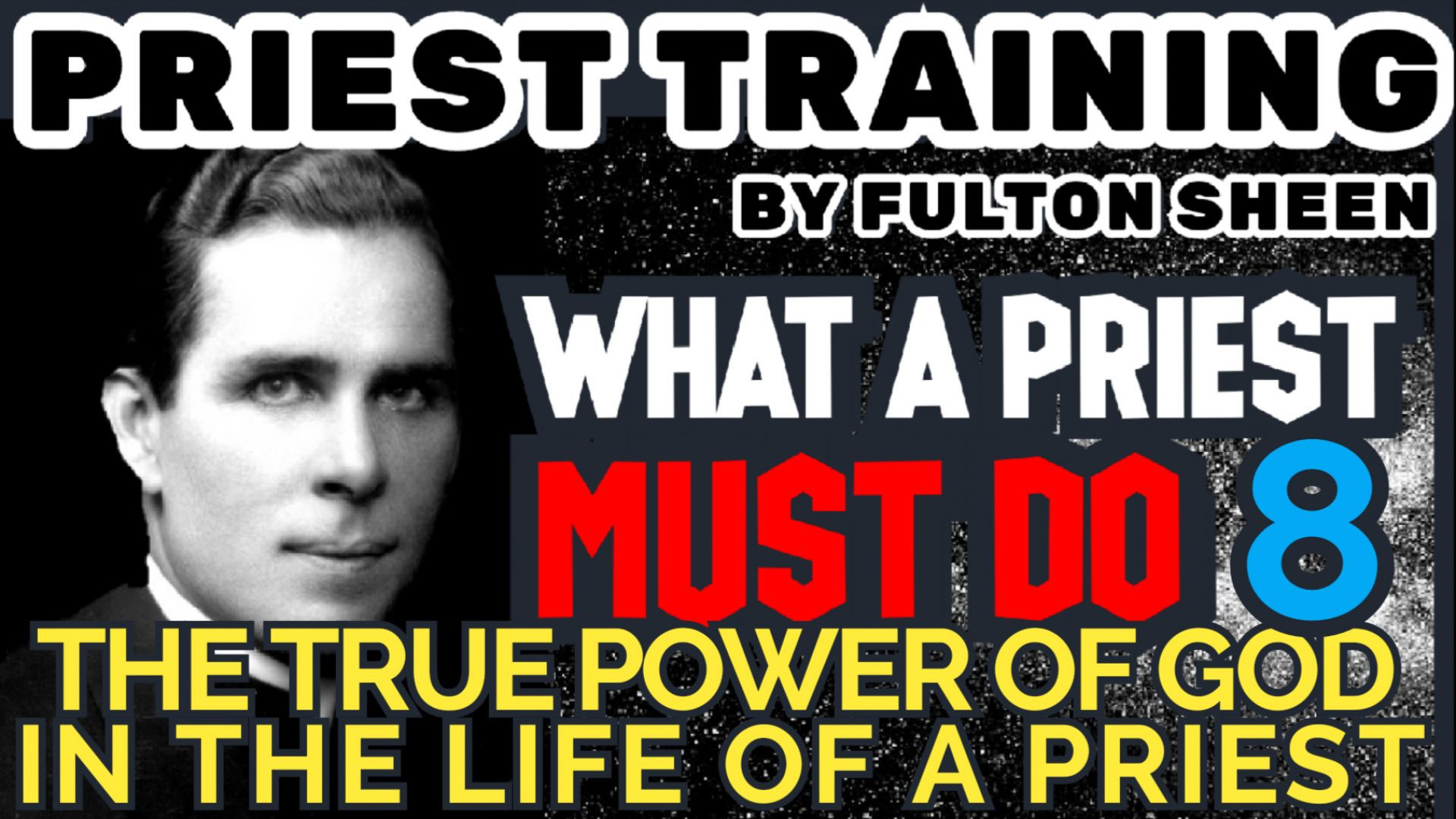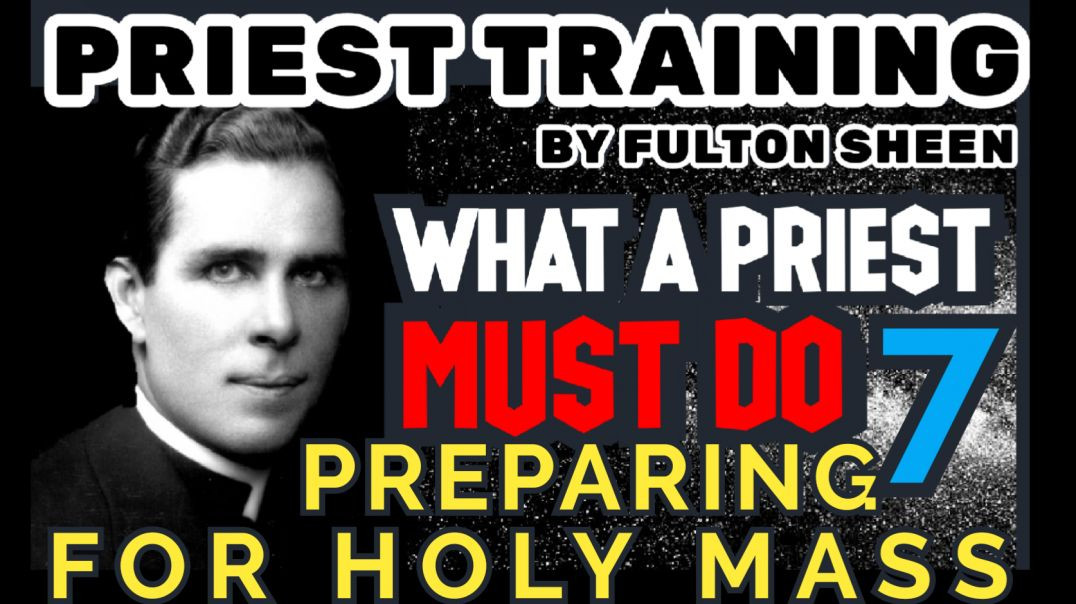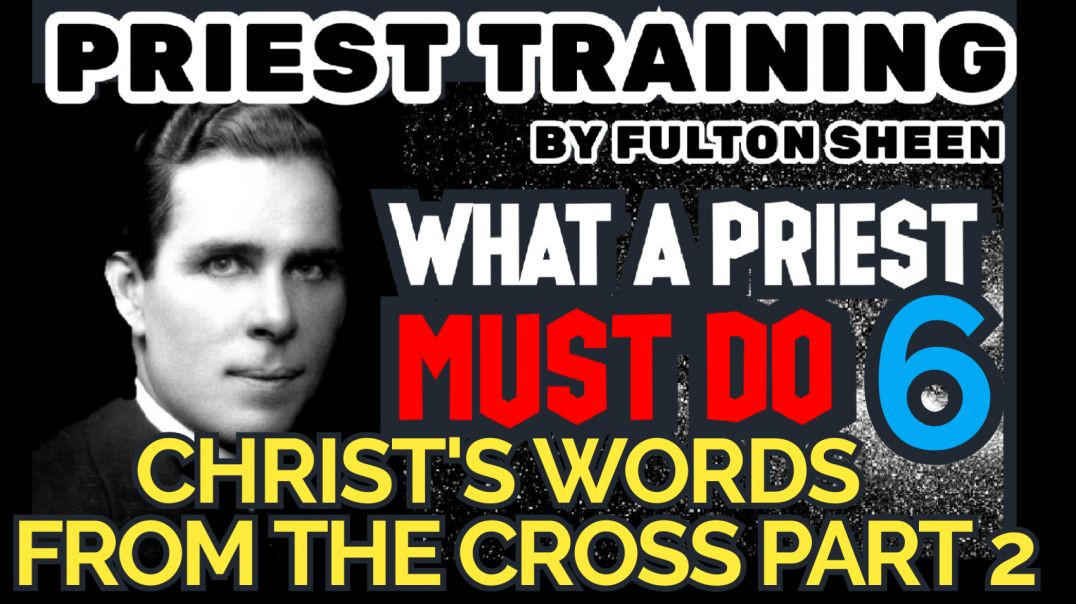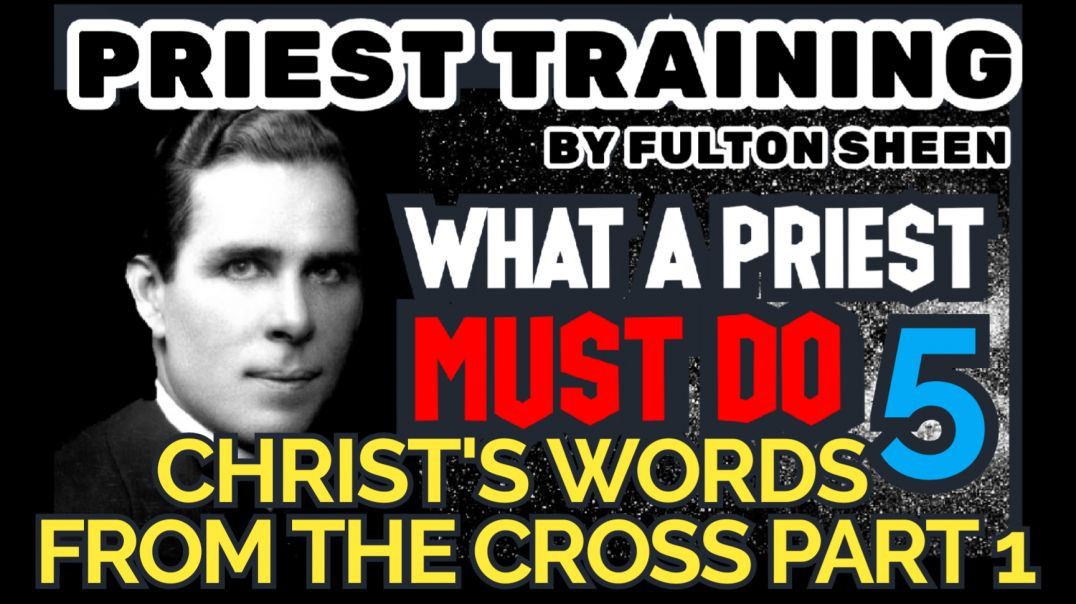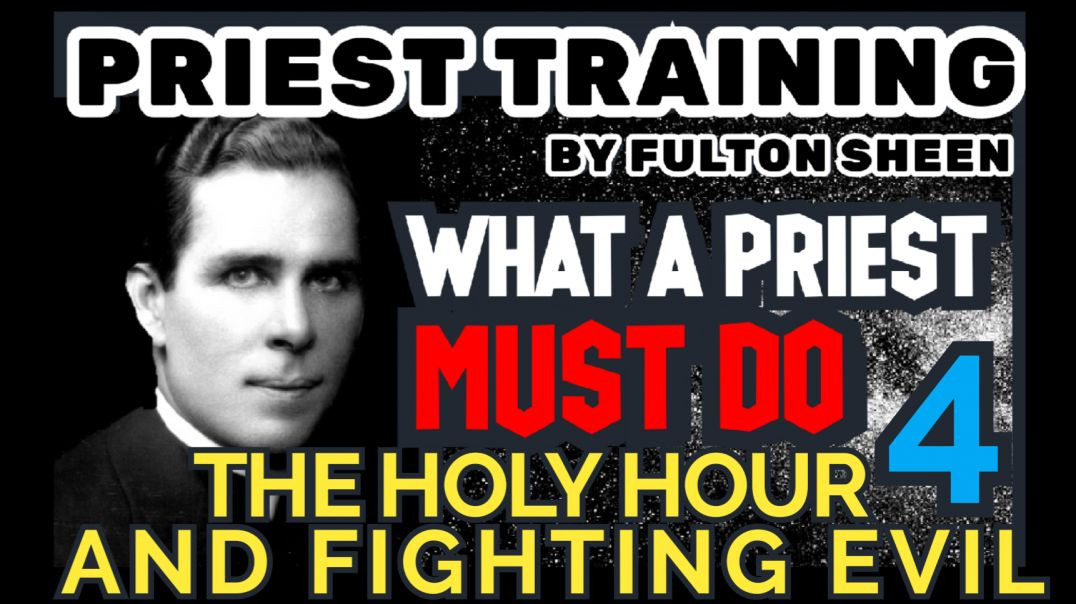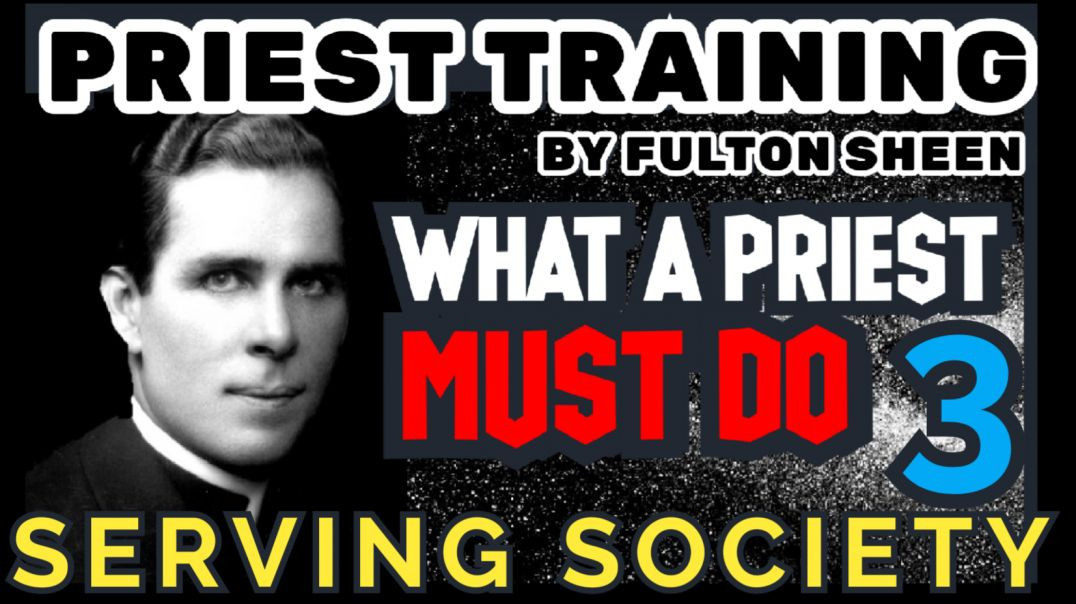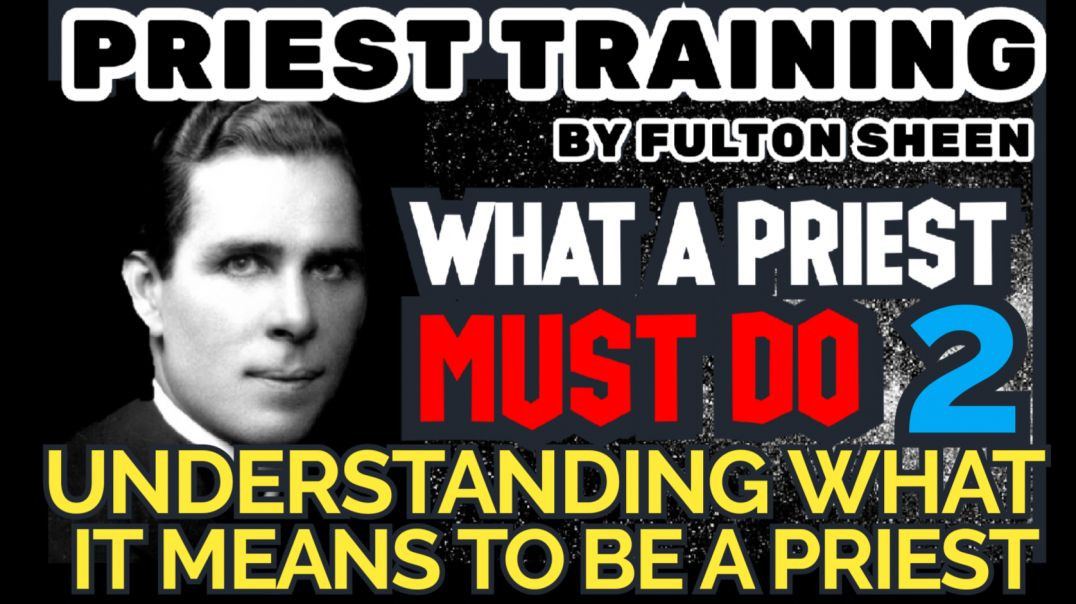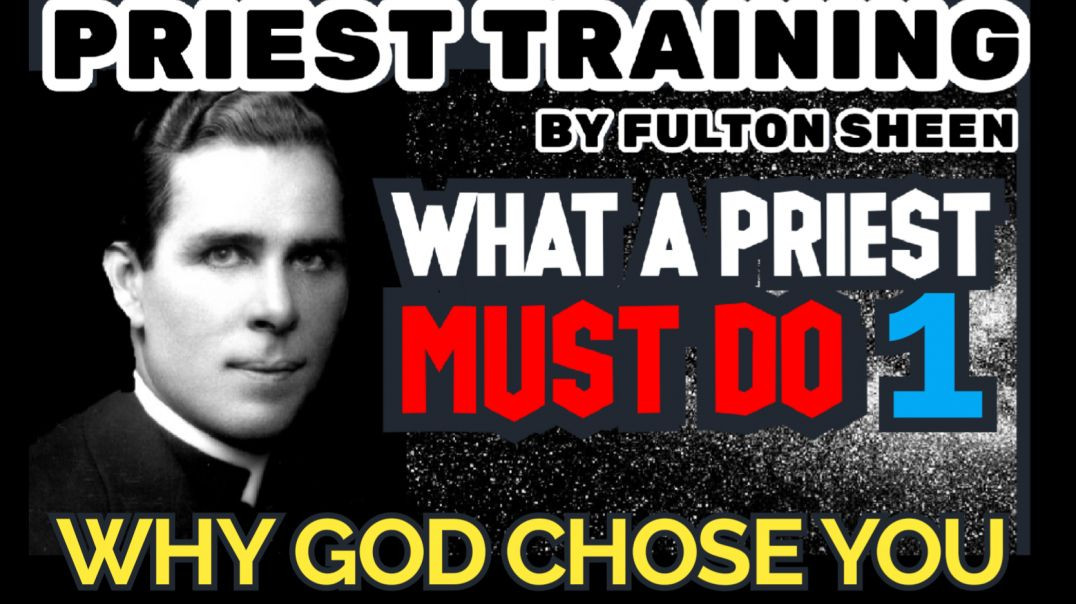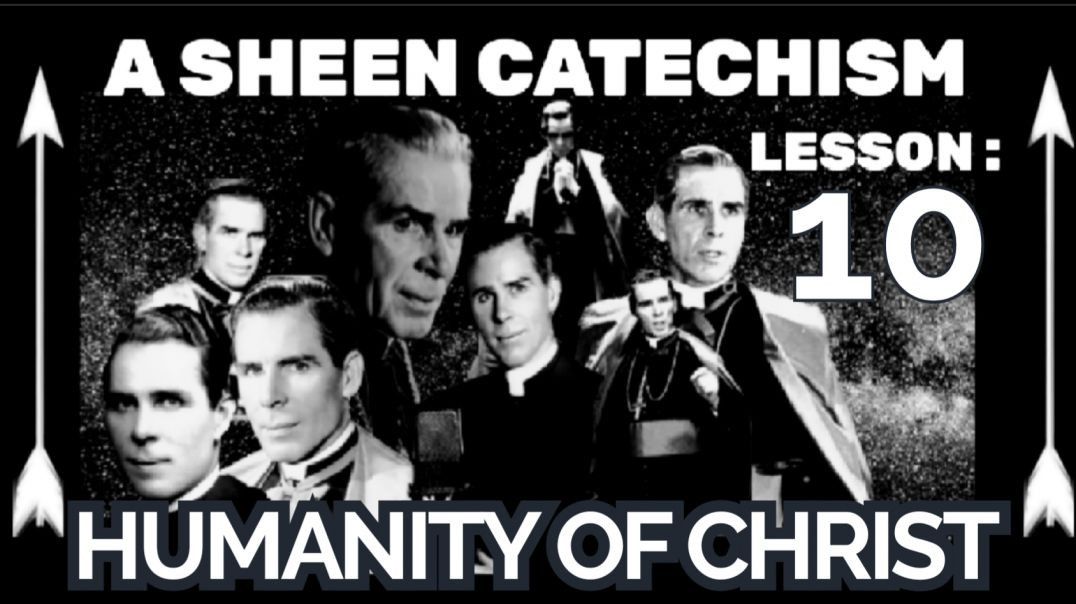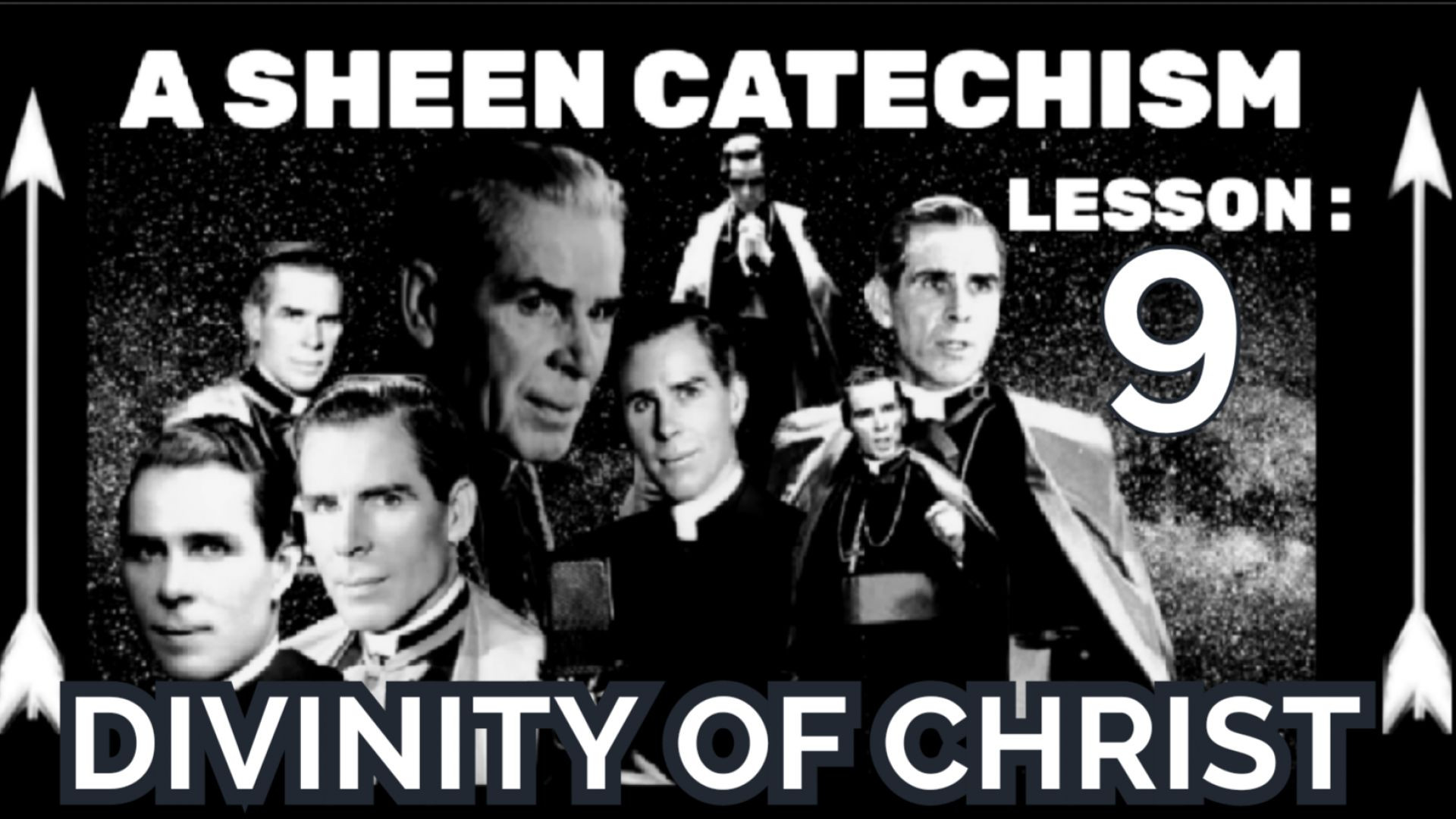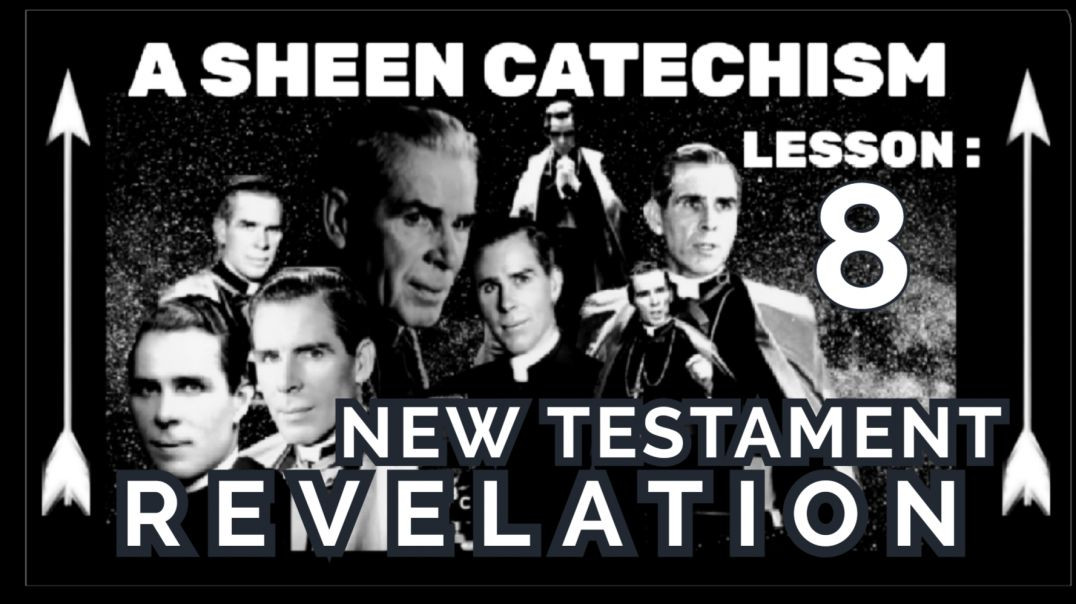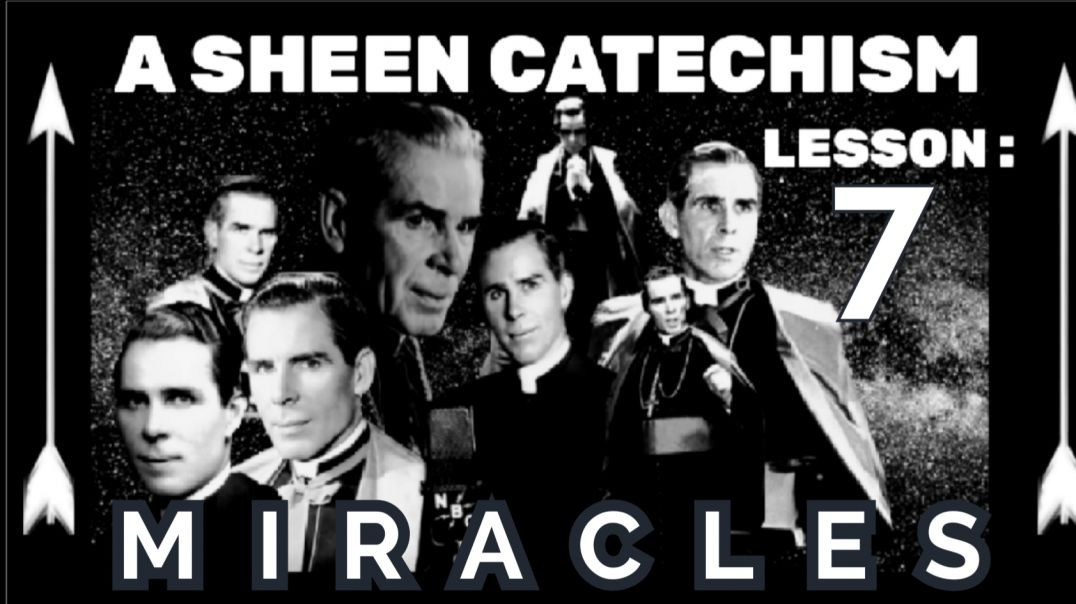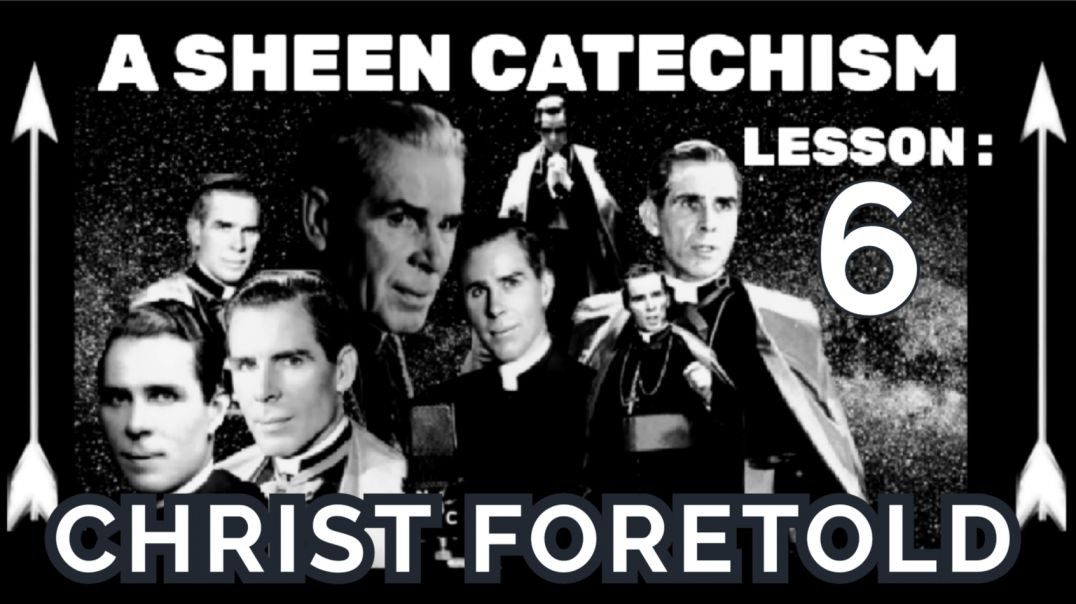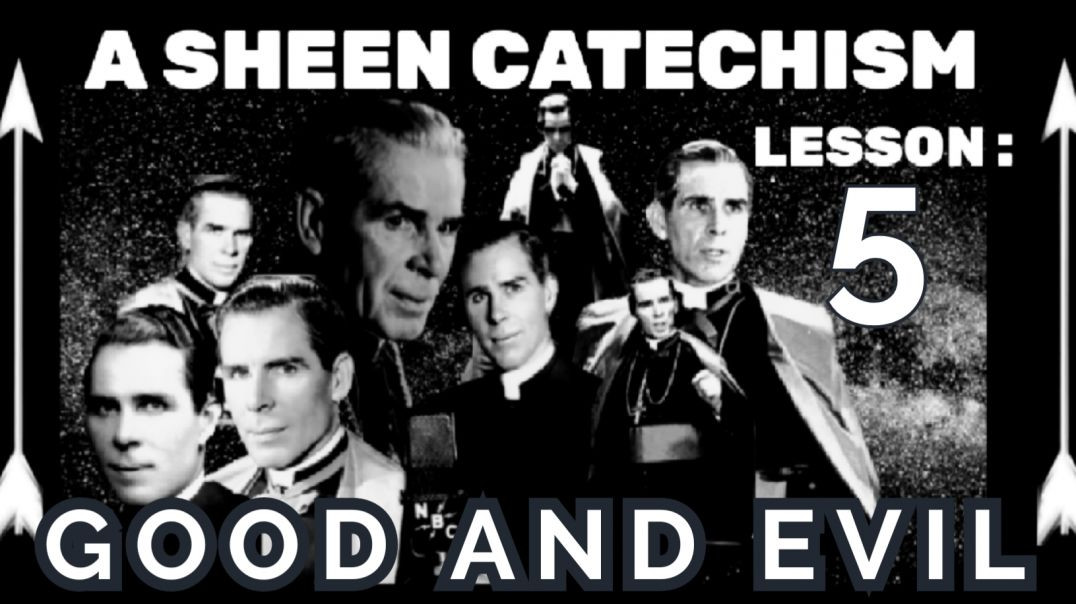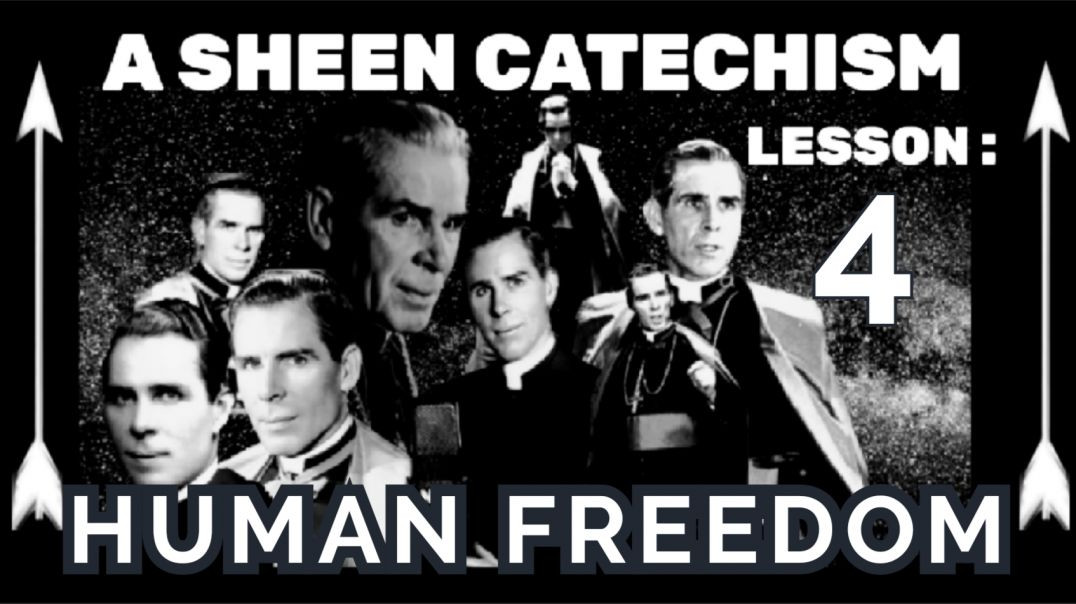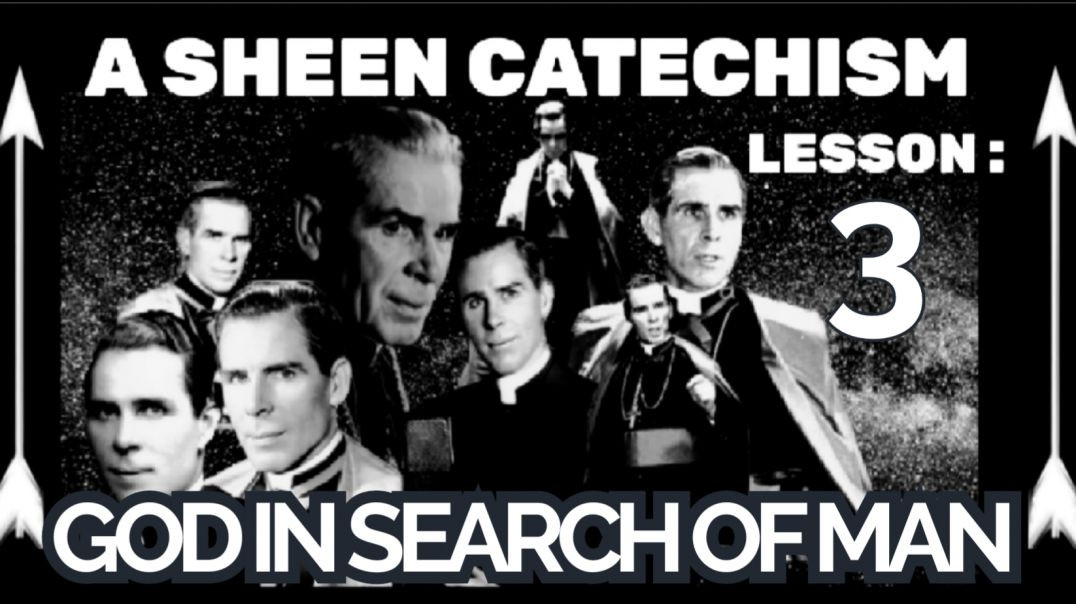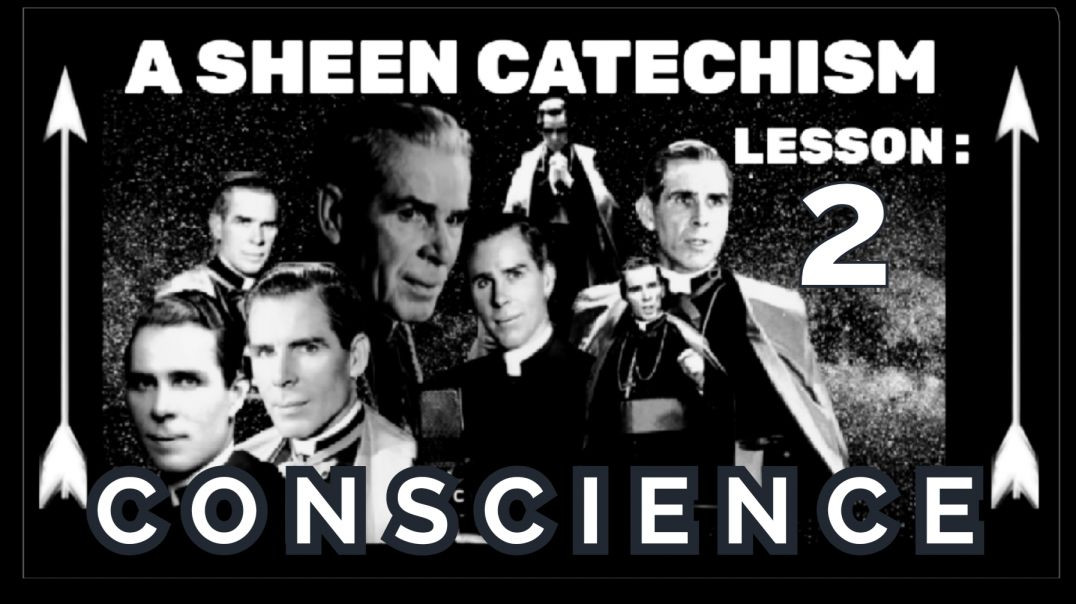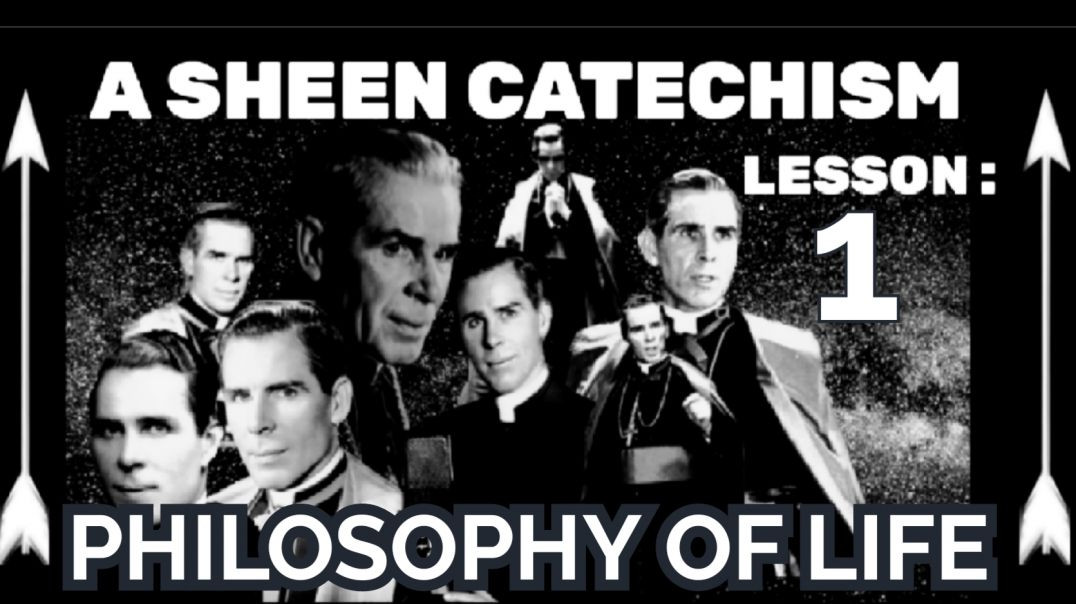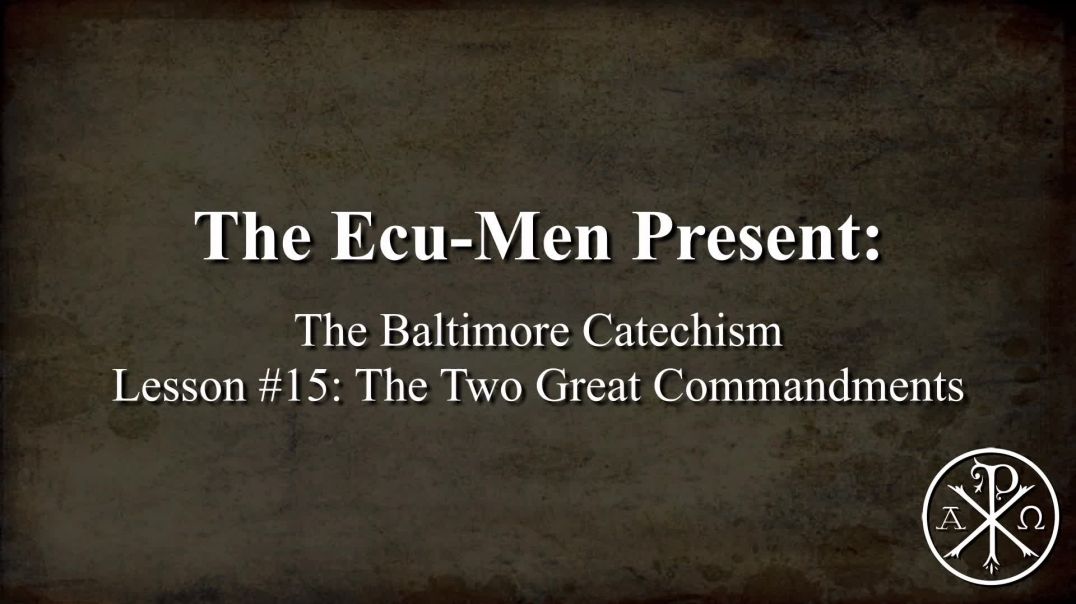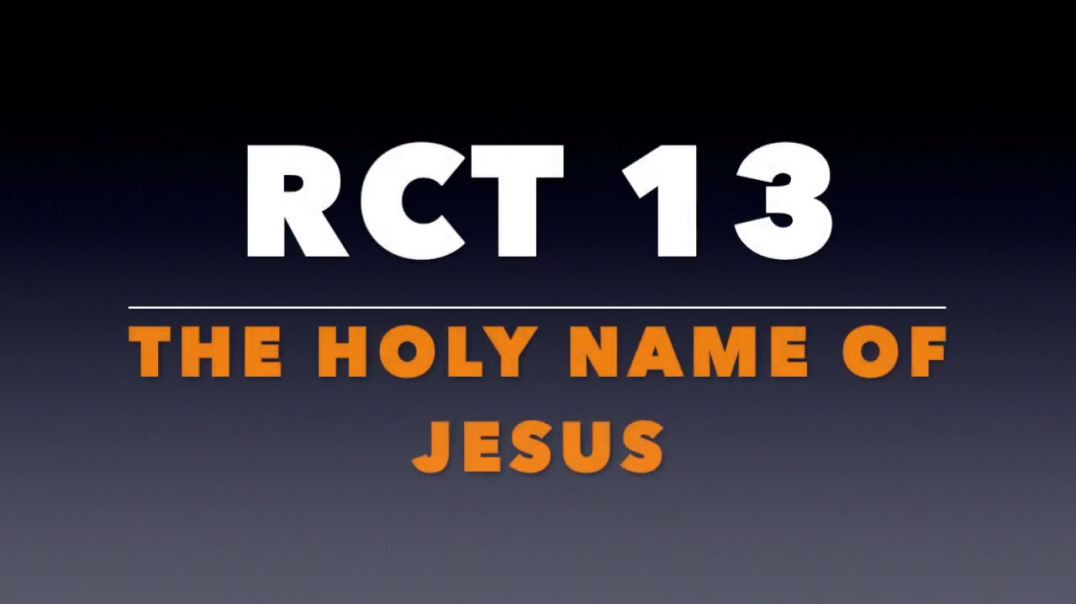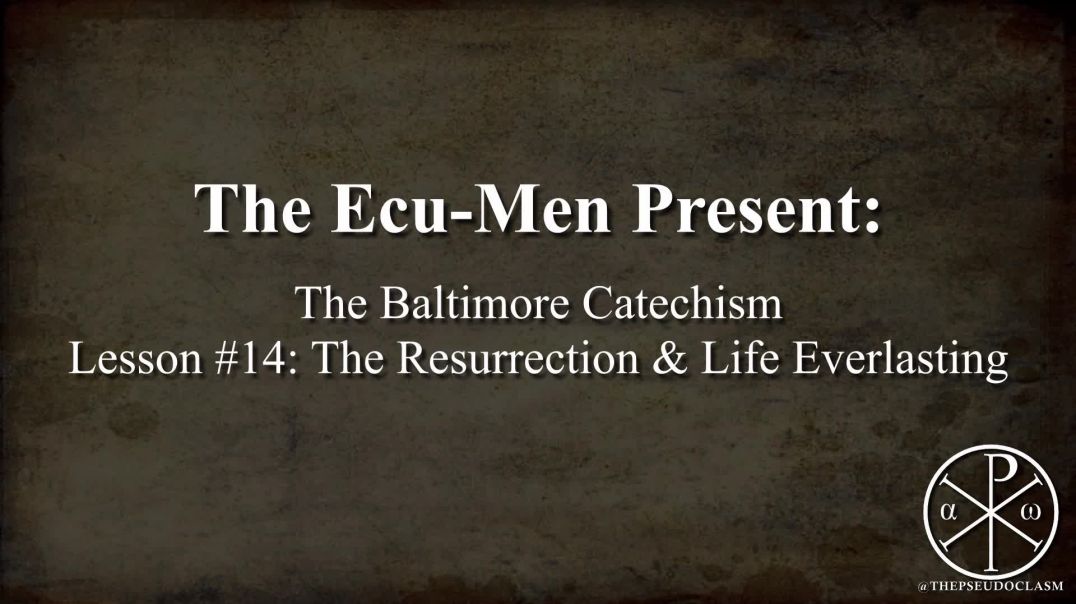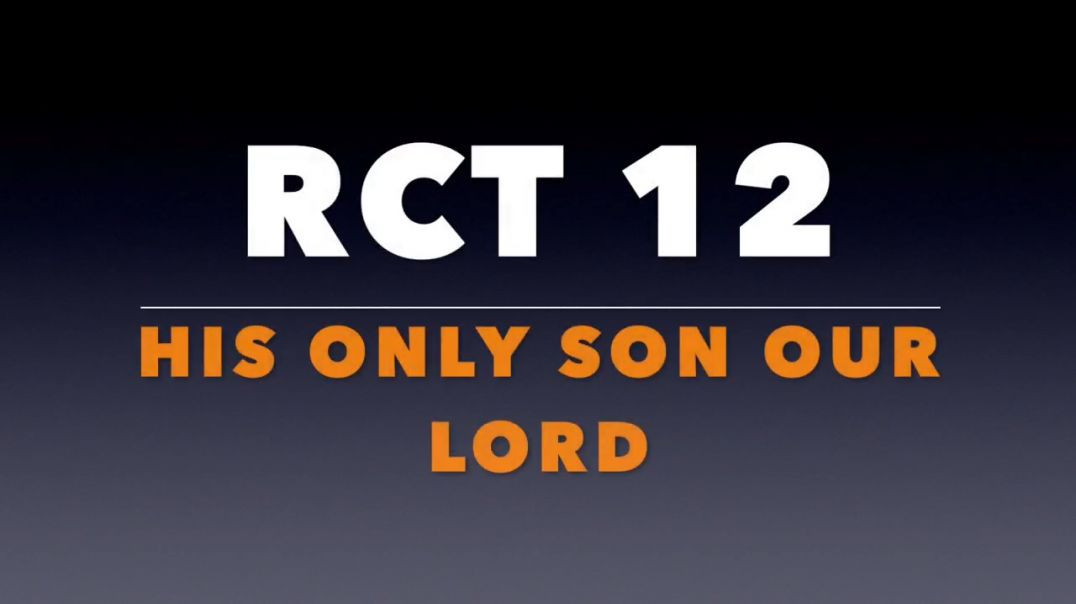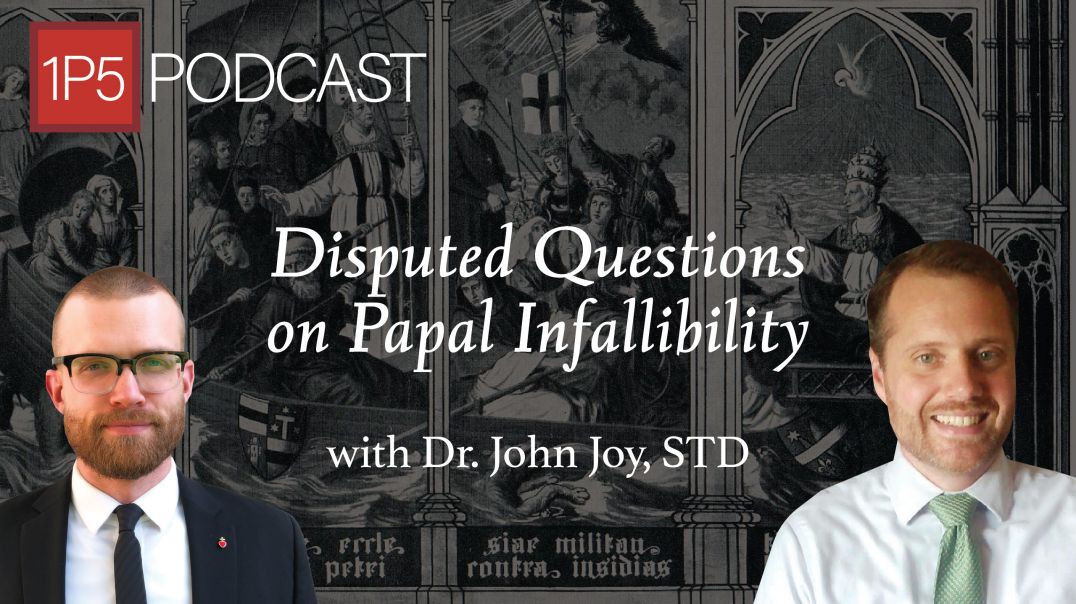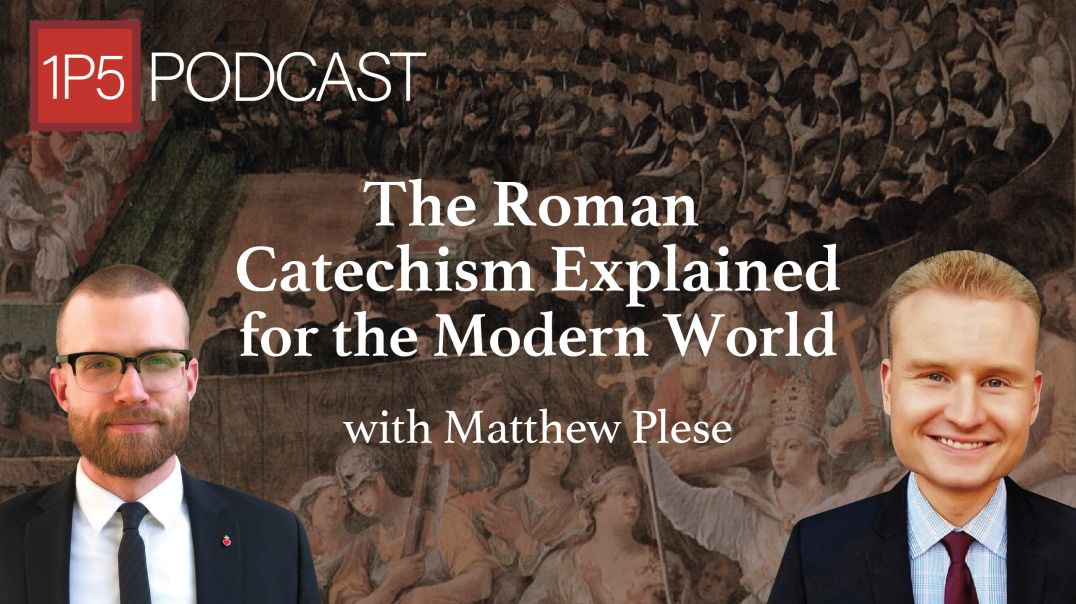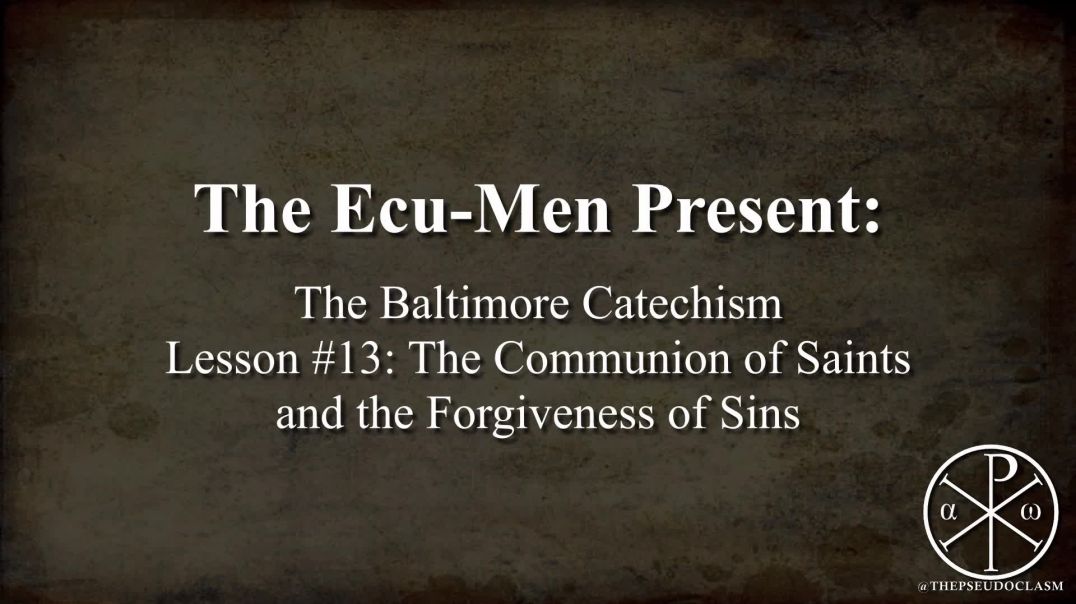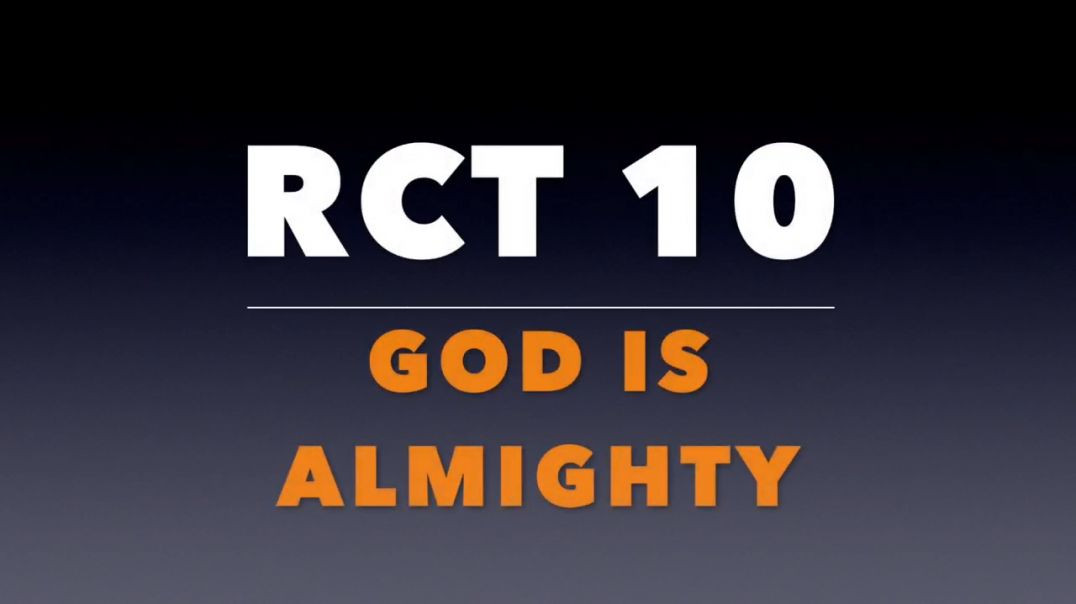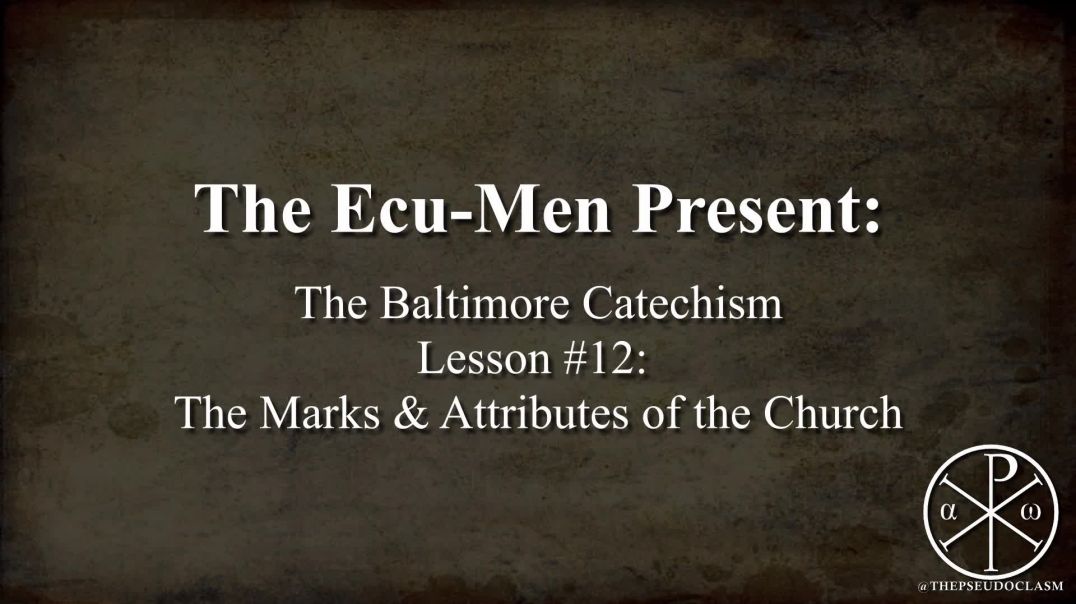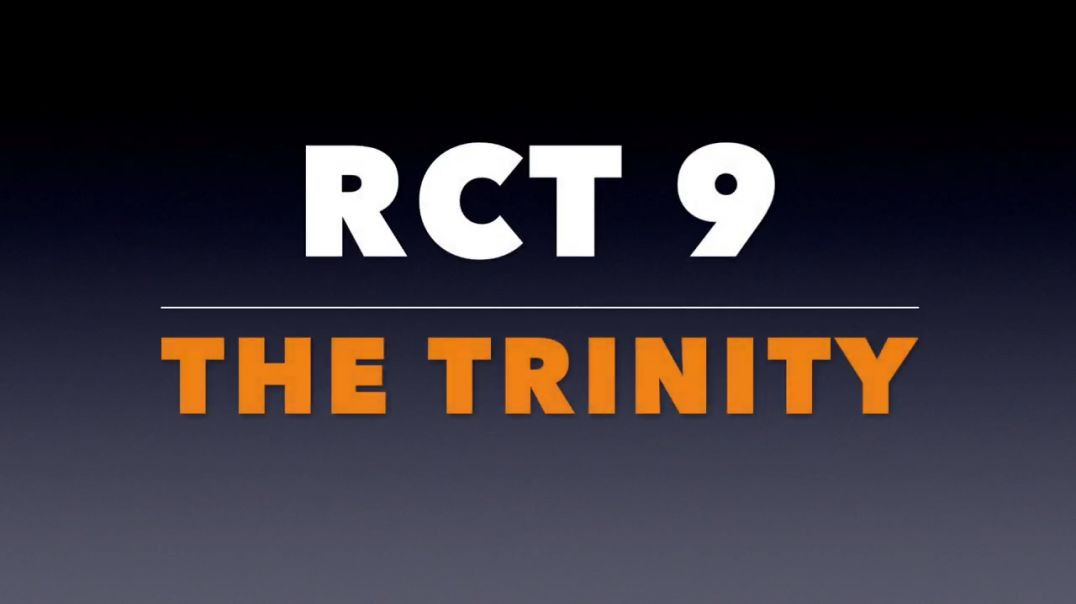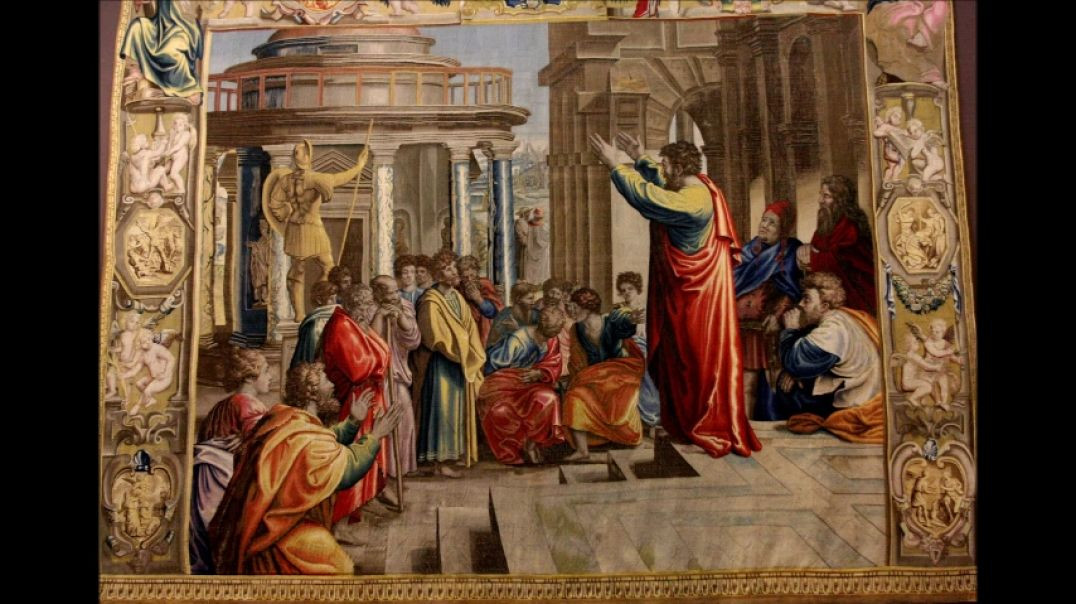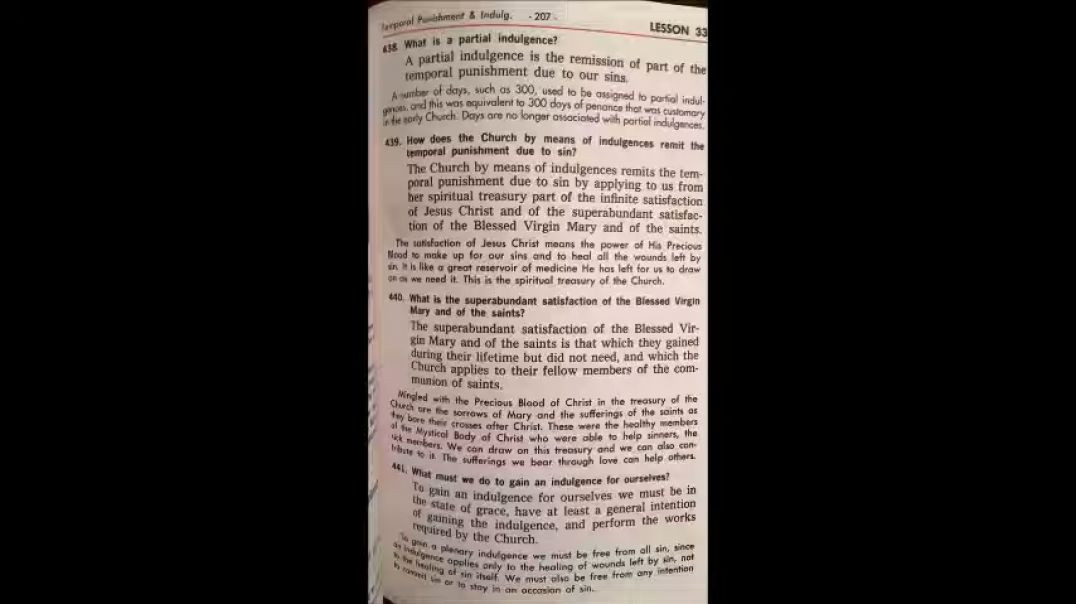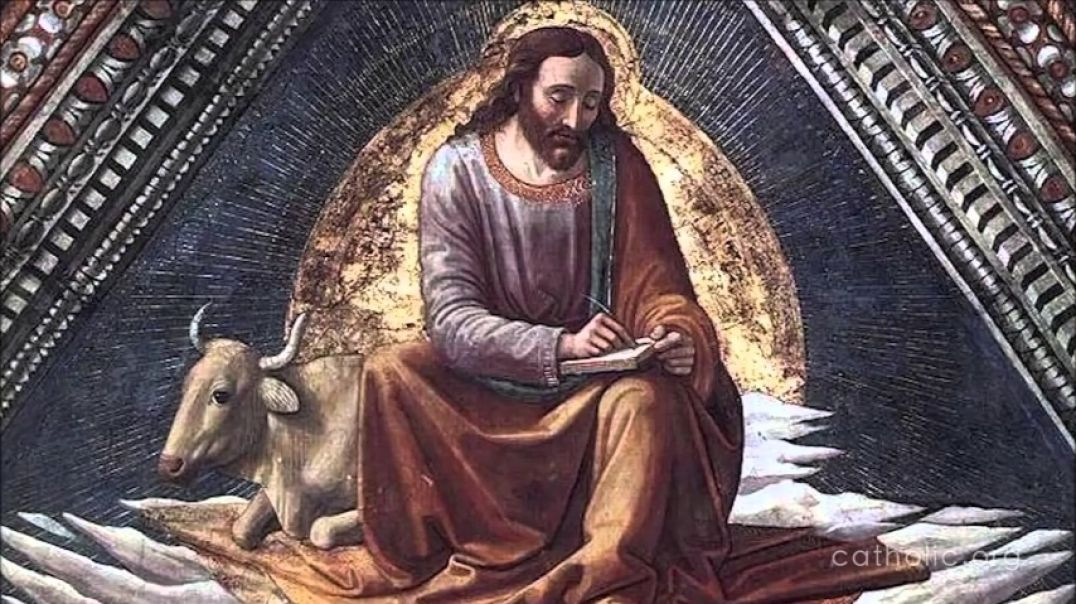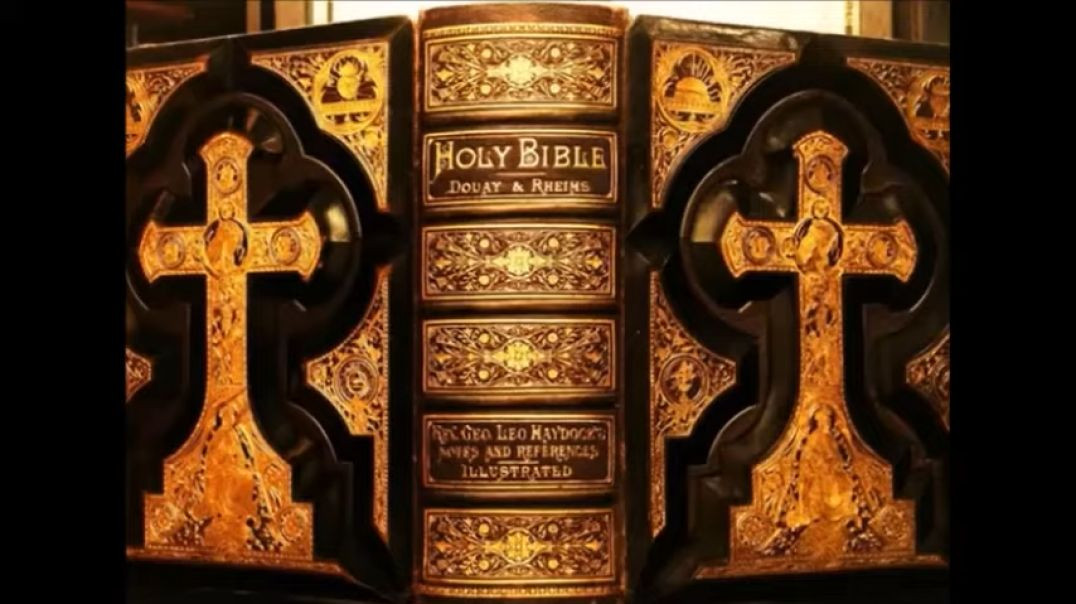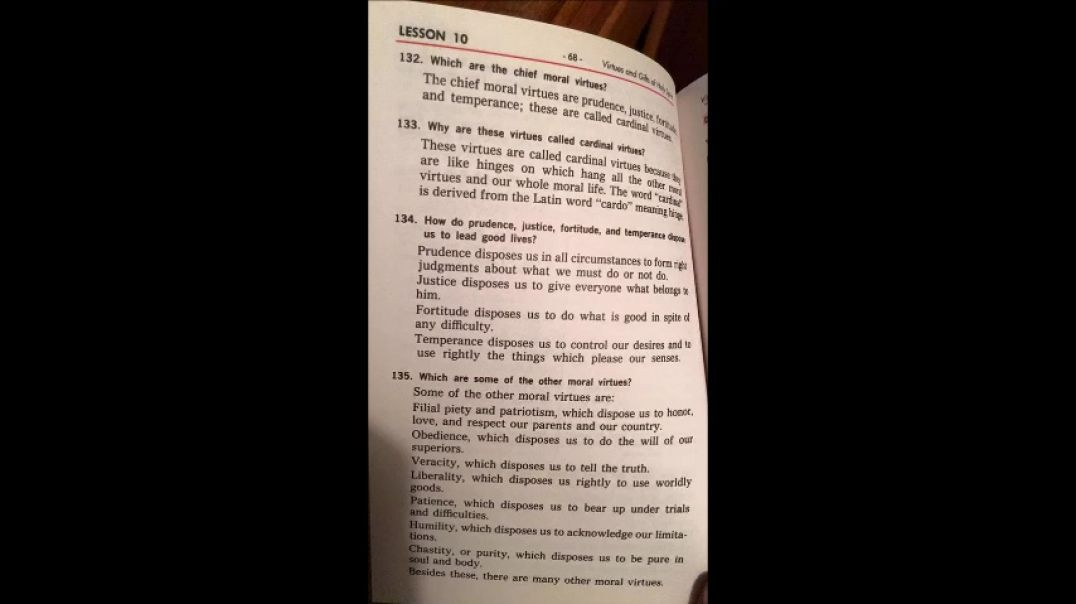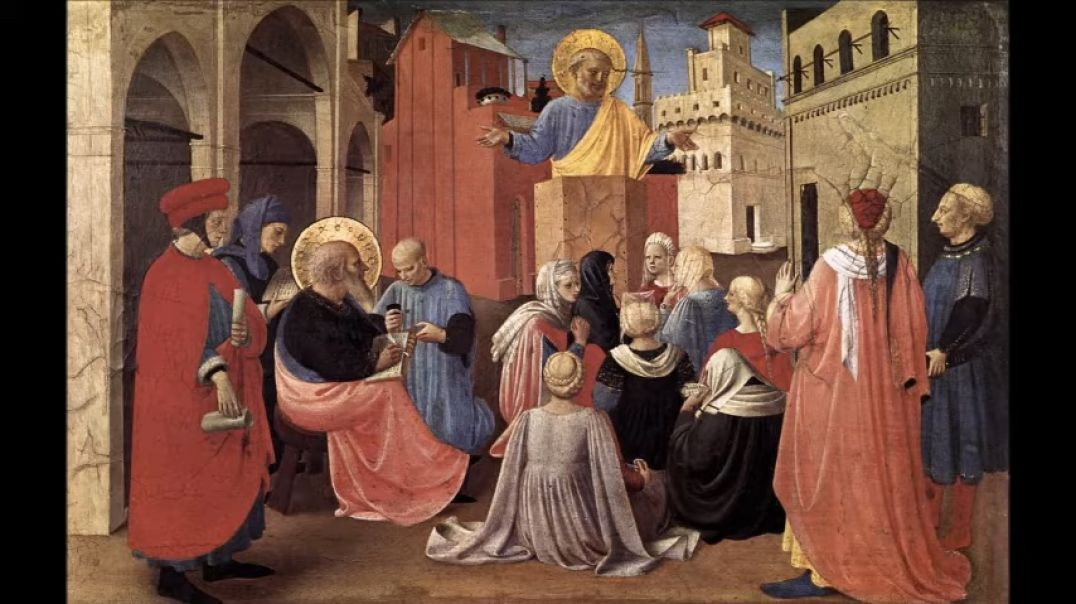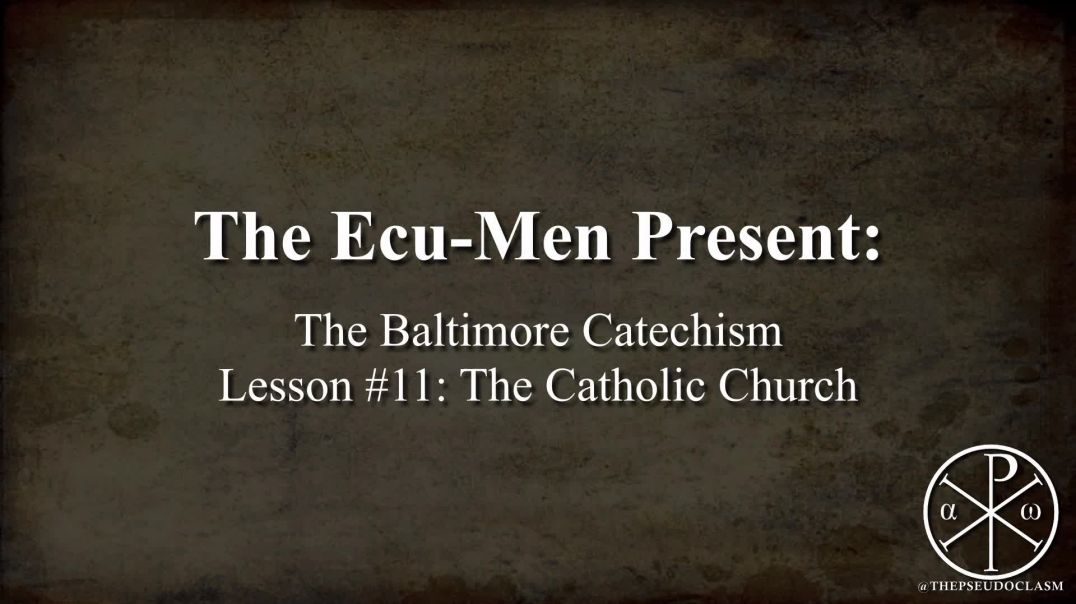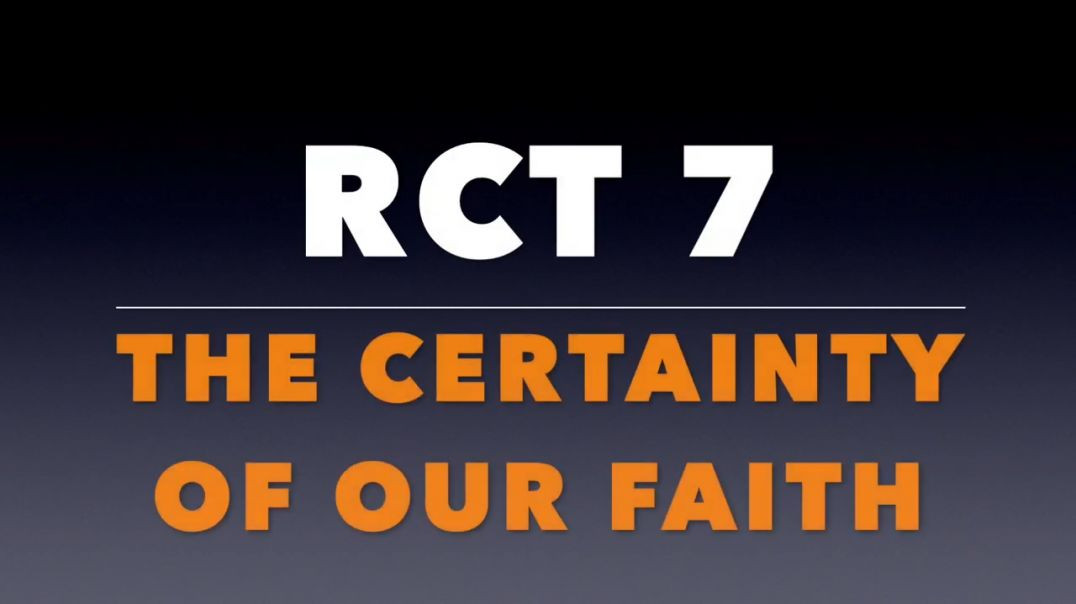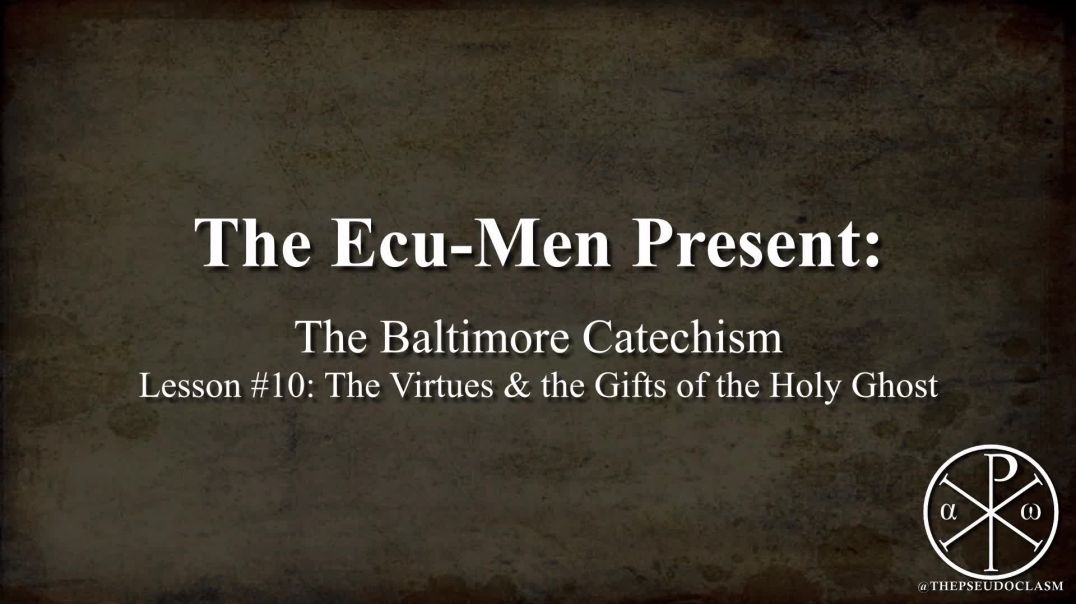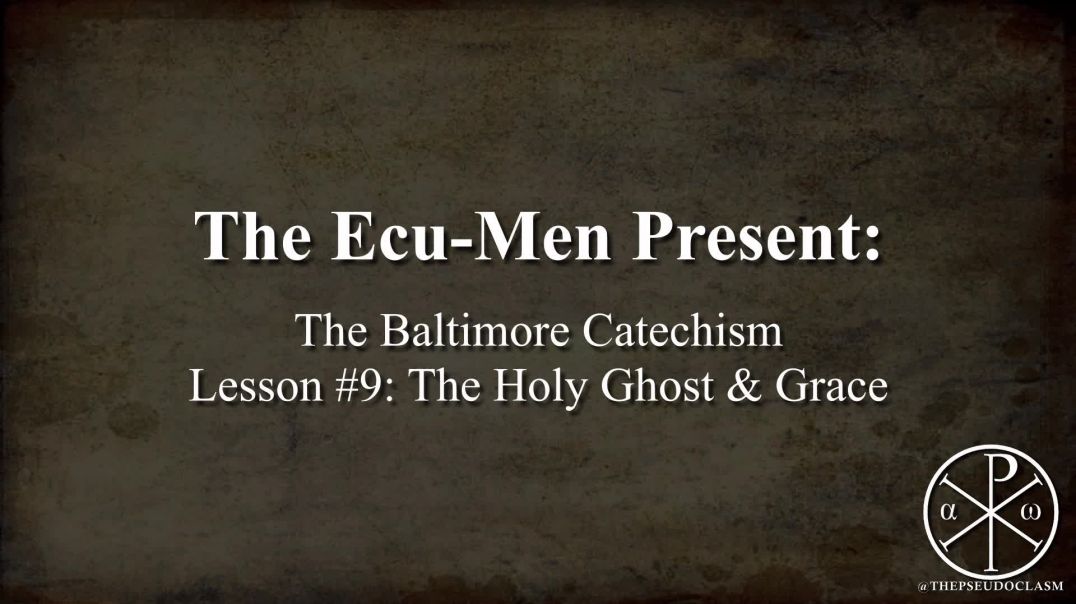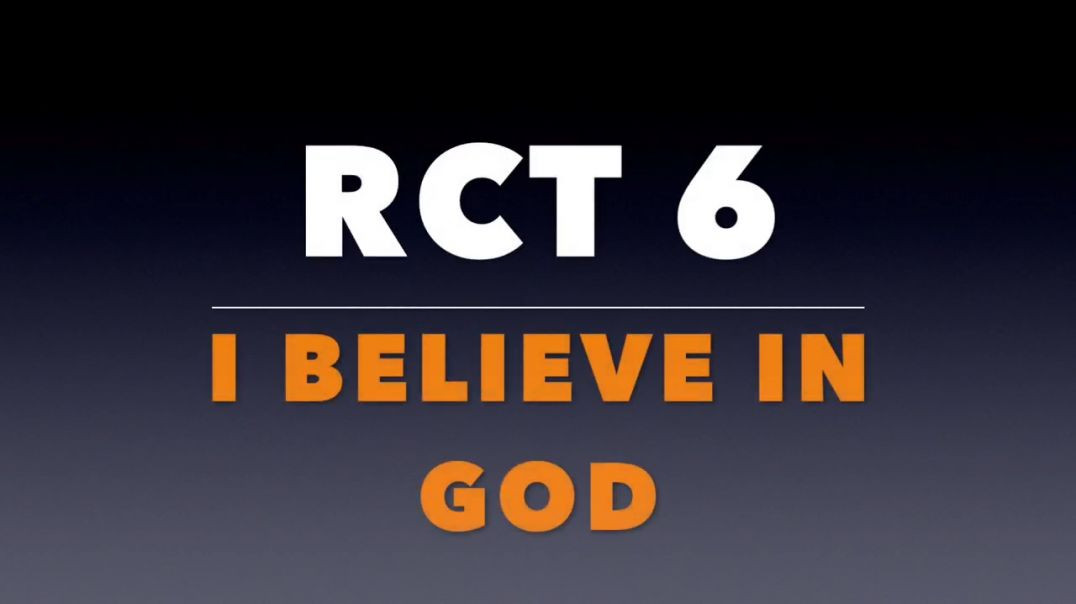Catechism
PRIEST TRAINING 9: REFLECTING CHRIST IN SOCIETY BY VENERABLE FULTON SHEEN
PRIEST TRAINING 8: THE TRUE POWER OF GOD IN THE LIFE OF A PRIEST BY VENERABLE FULTON SHEEN
PRIEST TRAINING 7: PREPARING FOR HOLY MASS BY VENERABLE FULTON SHEEN
PRIEST TRAINING 6: CHRISTS WORDS FROM THE CROSS PART 2 BY VENERABLE FULTON SHEEN
PRIEST TRAINING 5: CHRISTS WORDS FROM THE CROSS PART1 BY VENERABLE FULTON SHEEN
PRIEST TRAINING 4: THE HOLY HOUR AND FIGHTING EVIL BY VENERABLE FULTON SHEEN
PRIEST TRAINING 3 - SERVING SOCIETY BY VENERABLE FULTON SHEEN
PRIEST TRAINING 2: UNDERSTANDING WHAT IT MEANS TO BE A PRIEST BY VENERABLE FULTON SHEEN
PRIEST TRAINING 1 - WHY GOD CHOSE YOU BY VENERABLE FULTON SHEEN
AN AUDIO PRESENTATION - A SHEEN CATECHISM LESSON 10: HUMANITY OF CHRIST
AN AUDIO PRESENTATION - A SHEEN CATECHISM LESSON 9: DIVINITY OF CHRIST
AN AUDIO PRESENTATION - A SHEEN CATECHISM LESSON 8: A NEW TESTAMENT
AN AUDIO PRESENTATION - A SHEEN CATECHISM LESSON 7: MIRACLES
AN AUDIO PRESENTATON - A SHEEN CATECHISM LESSON 6: CHRIST FORETOLD
AN AUDIO PRESENTATION - A SHEEN CATECHISM LESSON 5: GOOD AND EVIL
AN AUDIO PRESENTATION - A SHEEN CATECHISM LESSON 4: HUMAN FREEDOM
AN AUDIO PRESENTATION - A SHEEN CATECHISM LESSON 3: GOD IN SEARCH OF MAN
AUDIO PRESENTATION - A SHEEN CATECHISM LESSON 2 - CONSCIENCE
AUDIO PRESENTATION - A SHEEN CATECHISM LESSON 1 - PHILOSOPHY OF LIFE
AVAILABLE TO BUY AT FultonSheen.com, Used with kind persmission.
Here on the next lesson of the Baltimore Catechism presented by the Ecu-Men, we cover the topic, the Two Great Commandments. We are Christian because we love God and seek to do His will. So, now let's talk about what that means with regard to how we must act. Thanks for listening!
188. Besides believing what God has revealed, what else must we do to be saved?
We must keep His law. (John 14:15)
189. Which are the two great commandments that contain the whole law of God?
The two great commandments that contain the whole law of God are:
Thou shalt love the Lord thy God with thy whole heart, and with thy whole soul, and with thy whole mind, and with thy whole strength;
Thou shalt love thy neighbor as thyself. (Matthew 22:35-40)
190. What must we do to love God, our neighbor, and ourselves?
We must keep the commandments of God and of the Church, and perform the spiritual and corporal works of mercy.
My dear children, let us not love in word, neither with the tongue, but in deed and in truth. (I John 3:18)
191. Which are the chief corporal works of mercy?
1. To feed the hungry.
2. To give drink to the thirsty.
3. To clothe the naked.
4. To visit the imprisoned.
5. To shelter the homeless.
6. To visit the sick.
7. To bury the dead.
192. Which are the chief spiritual works of mercy?
1. To admonish the sinner.
2. To instruct the ignorant.
3. To counsel the doubtful.
4. To comfort the sorrowful.
5. To bear wrongs patiently.
6. To forgive all injuries.
7. To pray for the living and the dead.
193. Is everyone obliged to perform the works of mercy?
Yes, according to his own ability and the need of his neighbor. (Matthew 25:35-36)
194. Are all the ordinary deeds done every day to relieve the corporal or spiritual needs of others true works of mercy?
Yes. They are true works of mercy, if done in the name of Christ. (Mark 9:40)
195. Which are the commandments of God?
The commandments of God are these ten:
1. I am the Lord thy God; thou shalt not have strange gods before Me.
2. Thou shalt not take the name of the Lord thy God in vain.
3. Remember thou keep holy the Lord's day.
4. Honor thy father and thy mother.
5. Thou shalt not kill.
6. Thou shalt not commit adultery.
7. Thou shalt not steal.
8. Thou shalt not bear false witness against thy neighbor.
9. Thou shalt not covet thy neighbor's wife.
10. Thou shalt not covet thy neighbor's goods.
196. Should we be satisfied merely to keep the commandments God?
No. We should always be ready to do good deeds, even when they are not commanded. (Matthew 19:21)
197. What does Our Savior especially recommend that is not strictly commanded by the law of God?
Our Savior especially recommends the observance of the Evangelical Counsels – voluntary poverty, perpetual chastity, and perfect obedience. (Matthew 5:48)
=======
Baltimore Catechism, Lesson 15:
https://www.catholicity.com/ba....ltimore-catechism/le
Greek Words for Love:
https://bit.ly/358EqAA
White Martrydom:
https://bit.ly/35h1BZG
Knights Hospitaller:
https://bit.ly/2zAcNEW
Church & the Black Death:
https://youtu.be/Q6kGGJb2KGo?t=522
Spanish Inquisition:
https://bit.ly/357egyf
Moderate for Their Time:
https://bit.ly/3eUHrsO
Thirty Years War:
https://bit.ly/2VP4Ggu
Islam in India:
https://bit.ly/3cYTLGK
St Augustine divides 10 Commandments:
https://bit.ly/2WbL7xx
Numbering of 10 Commandments:
https://bit.ly/2WaaoZe
Unnecessary Servile Work:
https://bit.ly/3f2zHou
Fr Ripperger, the Decalogue:
https://www.youtube.com/watch?v=TFlOcXzf1zE
St Thomas on Law (Q 100, Art. 11):
https://www.newadvent.org/summa/2100.htm
Evangelical Counsels:
https://www.newadvent.org/cathen/04435a.htm
The Roman Catechism of Trent (RCT) p. 35-38.
The Creed, Article II, Part B.
Here on the next lesson presented by the Ecu-Men, we will cover the Resurrection & Life Everlasting. We humans are body & soul. And together, we come to Christ to be cleansed of our sins; so let’s look at how it all fits together. Thanks for listening!
176. What is meant by "the resurrection of the body"?
It means that at the end of the world the bodies of all men will rise from the earth and be united again to their souls, nevermore to be separated. (I Corinthians 15::51)
177. Why will the bodies of the just rise?
The bodies of the just will rise to share forever in the glory of their souls.
178. Has the body of any human person ever been raised from the dead and taken into heaven?
Yes; the body of the Blessed Virgin Mary, united to her immaculate soul, was glorified and taken into heaven.
179. Why will the bodies of the damned also rise?
The bodies of the damned will also rise to share in the eternal punishment of their souls.
180. What is the judgment called which will be passed on all men immediately after the general resurrection?
It is called the general judgment. (Acts 10::42)
181. What is the judgment called which will be passed on each one of us immediately after death?
It is called the particular judgment. (Ecclesiasticus 11::28)
182. If everyone is judged immediately after death, why will there be a general judgment?
Although everyone is judged immediately after death, it is fitting that there be a general judgment in order that the justice, wisdom, and mercy of God may be glorified in the presence of all. (Wisdom 5::1-2)
183. What are the rewards or punishments appointed for men after the particular judgment?
The rewards or punishments appointed for men after the particular judgment are heaven, purgatory, or hell.
184. Who is punished in purgatory?
Those are punished for a time in purgatory who die in the state of grace but are guilty of venial sin, or have not fully satisfied for the temporal punishment due to their sins. (I Corinthians 3::13-15)
185. Who is punished in hell?
Those who die in mortal sin; they are deprived of the vision of God and suffer dreadful torments, especially that of fire, for all eternity. (Matthew 25::41)
186. Who is rewarded in heaven?
Those who have died in the state of grace and have been purified in purgatory, if necessary, from all venial sin and all debt of temporal punishment; they see God face to face and share forever in His glory and happiness. (Matthew 25::34)
187. What is meant by the word "Amen," with which we end the Apostles' Creed?
It means: "So it is," or "So be it"; the word expresses our firm belief in all the doctrines that the Creed contains. (Matthew 8::10)
=======
Baltimore Catechism, Lesson 14:
https://www.catholicity.com/ba....ltimore-catechism/le
Homily - Resurrection & Judgment:
https://www.youtube.com/watch?v=n6a6GhJJ8GQ
Fr Isaac Relyea, Four Last Things:
Death: https://www.youtube.com/watch?v=aoszP77btJ8
Judgment: https://www.youtube.com/watch?v=q46tdlFM1W0&t=2434s
Hell: https://www.youtube.com/watch?v=7td1Gx2clZY
Heaven: https://www.youtube.com/watch?v=vB-b7-rEnfc
Public Confession of Sins:
NT: Matt. 3::6; Mark 1::5, Acts 19::18, 1 Tim. 6::12, 1 John 1::9, James 5::14-16
OT: Numbers. 5::7, 2 Samuel 12::14, Nehemiah 9::2-3, Sirach 4::26, Baruch 1::14
Pharisees/Sadducees/Essenes:
https://bit.ly/2WSTgJj
Hell:
http://www.newadvent.org/cathen/07207a.htm
Atonement:
http://www.newadvent.org/cathen/02055a.htm
Gehenna:
https://en.wikipedia.org/wiki/Gehenna
Roman Catechism of Trent (RCT) p. 32-34
The Creed, Article II, Part A
****
Archbishop Fulton Sheen’s “Ancient Pagan Prophesies Describing the Savior of the World”: https://www.padreperegrino.org/2021/12/pagans/
Disputed Questions on Papal Infallibility PRINT https://www.amazon.com/Disputed-Questions-Papal-Infallibility-John-ebook/dp/B0BNY6Q7XC/ref=sr_1_1?keywords=disputed+questions+on+papal+infallibility&qid=1670518643&sprefix=disputed+question%2Caps%2C108&sr=8-1
Disputed Questions on Papal Infallibility PRINT https://osjustipress.com/
John Joy ARCHIVES https://onepeterfive.com/author/jjoy/
https://www.amazon.com/Disputed-Questions-Papal-Infallibility-John-ebook/dp/B0BNY6Q7XC/ref=sr_1_1?keywords=disputed+questions+on+papal+infallibility&qid=1670518643&sprefix=disputed+question%2Caps%2C108&sr=8-1
Here on the next lesson presented by the Ecu-Men, we cover the topic, the Communion of Saints & the Forgiveness of Sins. We don’t practice our faith alone. And together, we come to Christ to be cleansed of our sins; so let’s look at how it all fits together. Thanks for listening!
170. What is meant by "the communion of saints" in the Apostles' Creed?
By "the communion of saints", it is meant that the union of the faithful on earth, the blessed in heaven, and the souls in purgatory, with Christ as their Head.
171. Through the communion of saints, what can the blessed in heaven do for the souls in purgatory and the faithful on earth?
Through the communion of saints, the blessed in heaven can help the souls in purgatory and the faithful on earth by praying for them.
It is therefore a holy and wholesome thought to pray for the dead, that they may be loosed from their sins. (II Maccabees 12:46)
172. Should the faithful on earth, through the communion of saints, honor the blessed in heaven and pray to them?
The faithful on earth, through the communion of saints, should honor the blessed in heaven and pray to them, because they are worthy of honor and as friends of God will help the faithful on earth.
Let us now praise men of renown, and our fathers in their generation. (Ecclesiasticus 44:1)
173. Can the faithful on earth, through the communion of saints, relieve the sufferings of the souls in purgatory?
The faithful on earth, through the communion of saints, can relieve the sufferings of the souls in purgatory by prayer, fasting, and other good works, by indulgences, and by having Masses offered for them.
It is therefore a holy and wholesome thought to pray for the dead, that they may be loosed from their sins. (II Maccabees 12:46)
174. Can the faithful on earth help one another?
The faithful on earth, as members of the Mystical Body of Christ, can help one another by practicing supernatural charity and the spiritual and corporal works of mercy.
Pray for one another that you may be saved. For the unceasing prayer of a just man is of great avail. (James 5:16)
175. What is meant in the Apostles' Creed by "the forgiveness of sins"?
By "the forgiveness of sins" in the Apostles' Creed, it is meant that God has given to the Church, through Jesus Christ, the power to forgive sins, no matter how great or how many they are, if sinners truly repent.
Receive the Holy Ghost; whose sins you shall forgive, they are forgiven them; and whose sins you shall retain, they are retained. (John 20:22-23)
=======
Baltimore Catechism, Lesson 13:
https://www.catholicity.com/ba....ltimore-catechism/le
The Books of the Bible:
https://bit.ly/3acIBwV
Saints on Earth (CCC 954)
https://bit.ly/2xiBAMo
St Mercurius
https://en.wikipedia.org/wiki/Saint_Mercurius
St Louis de Montfort, True Devotion to Mary:
https://bit.ly/2y1fsXt
St Alphonsus, Glories of Mary:
https://bit.ly/3afsdMc
Public Confession Verses:
NT: Matt. 3:6; Mark 1:5, Acts 19:18, 1 Tim. 6:12, 1 John 1:9, James 5:14-16
OT: Numbers. 5:7, 2 Samuel 12:14, Nehemiah 9:2-3, Sirach 4:26, Baruch 1:14
Confession of Rudolph Hoss:
https://bit.ly/3dkGQ2C
Roman Catechism of Trent (RCT) p. 24-27.
Part I of the RCT: The Creed, Article 1, Phrase 4
Athanasian Creed:
https://www.padreperegrino.org..../2019/06/symbolathan
Here on the next lesson presented by the Ecu-Men, we cover the Marks & Attributes of the Church: I.e. what sets her apart from all the rest. So join us as we talk about the Church Christ founded & how it is unique. Thanks for listening!
152. Which is the one true Church established by Christ?
The one true Church established by Christ is the Catholic Church. (John 10.16)
153. How do we know that the Catholic Church is the one true Church established by Christ?
Because it alone has the marks of the true Church. (John 17.11)
154. What do we mean by the marks of the Church?
Certain clear signs by which all men can recognize it as the true Church founded by Jesus Christ.
155. What are the chief marks of the Church?
The Four Marks: It is one, holy, catholic or universal, & apostolic.
156. Why is the Catholic Church one?
All its members, according to the will of Christ, profess the same faith, have the same sacrifice & sacraments, and are united under one & the same visible head, the Pope. (I Cor 10.17)
157. Why is the Catholic Church holy?
Because it was founded by Jesus Christ, who is all-holy. It teaches, according to the will of Christ, holy doctrines, & provides the means of leading a holy life, thereby giving holy members to every age. (Matt 7.17-20)
158. Why is the Catholic Church catholic or universal?
Because, destined to last for all time, she never fails to fulfill the divine commandment to teach all nations all the truths revealed by God. (Matt 24.14)
159. Why is the Catholic Church apostolic?
Because it was founded by Christ on the apostles &, according to His divine will, has always been governed by their lawful successors. (Matt 16.18)
160. How do we know that no other church but the Catholic Church is the true Church of Christ?
Because no other church has these four marks.
161. What are the chief attributes of the Catholic Church?
Authority, infallibility, and indefectibility. They are called attributes because they are qualities perfecting the nature of the Church.
162. What is meant by the authority of the Catholic Church?
It means the Pope and the bishops, as the lawful successors of the apostles, have power from Christ Himself to teach, to sanctify, & to govern the faithful in spiritual matters. (II Cor 5.20)
163. What is meant by the infallibility of the Catholic Church?
That the Church, by the special assistance of the Holy Ghost, cannot err when it teaches or believes a doctrine of faith or morals. (John 14.26)
164. When does the Church teach infallibly?
The Church teaches infallibly when it defines, through the Pope alone, as the teacher of all Christians, or through the Pope and the bishops, a doctrine of faith or morals to be held by all the faithful.
165. What is meant by the indefectibility of the Catholic Church?
That the Church, as Christ founded it, will last until the end of time. (Matt 28.20)
166. Are all obliged to belong to the Catholic Church in order to be saved?
All are obliged to belong to the Catholic Church in order to be saved. (John 14.6)
167. What do we mean when we say, "Outside the Church there is no salvation?"
We mean that Christ made the Catholic Church a necessary means of salvation and commanded all to enter it, so that a person must be connected with the Church in some way to be saved.
168. How can persons who are not members of the Catholic Church be saved?
They can be saved if, through no fault of their own, they do not know that the Catholic Church is the true Church, but they love God and try to do His will, for in this way they are connected with the Church by desire.
169. Why is the Catholic Church called the Mystical Body of Christ?
Members are united by supernatural bonds w/ one another and with Christ, their Head, thus resembling the members and head of the living human body. (Col 1.18)
=======
Baltimore Catechism, Lesson 12:
https://bit.ly/2IIO1DM
St Jerome:
http://www.newadvent.org/fathers/3005.htm
Pope St Siricius:
https://bit.ly/3aSkEuM
St Hippolytus:
https://bit.ly/3cYBjib
Council of Trent:
https://bit.ly/38UKjS1
Sight of Hell:
https://bit.ly/3aNPEMy
Michael Davies, English Reformation:
https://bit.ly/2TSFswK
Roman Catechism of Trent (RCT) p. 22-24
***
CPX 33 on the Eastern Rites of the Catholic Church: https://youtu.be/600fkzBHdBc
*******
Trinitarian Bible Apologetics from Dr. Taylor Marshall :
The Trinity is one Substance and three divine Persons:
Mt 28:19 – Baptism is Trinitarian “I baptize you in the name (singular) of the Father, and of Son, and of Holy Spirit.”
***
Jesus is a Divine Person:
Jn 1:1 the Word was with God and the Word was God
Jn 8:58-59 – Before Abraham was, I AM
Jn 10:30 – Jesus “I and the Father are one."
Jn 20:28 – Jesus accepts Thomas’ words “My Lord and my
God!”
Col 2:9 – in [Jesus] dwells bodily the whole fullness of God
***
The Holy Spirit is a Divine Person
Jn 14:26 – the Holy Spririt will teach you all things
Acts 5:3-4 – lying to the Holy Spirit is lying to God
Acts 13:2 – “Holy Spirit said, ‘Set apart for me...’”
***
The Catholic Church teaches that Jesus is:
o Second Person of the Trinity
o One divine person with two natures (divine & human) o 100% divine (Son of God)
o 100% human (Son of Mary)
o Christ or Messiah (Son of David)
o Rose from the dead and is seated at Father’s right hand
***
HERESIES to avoid:
o Sabellianism (Modalism) exaggerates the oneness of the Father and the Son so as to make them but one Person. For modalists, the distinctions in the Holy Trinity are energies or modes, not Persons. For example, God the Father only *appears* on earth as Son. This is clearly a heresy, as Catholics and Orthodox believe in Three Eternal but distinct Persons in the Trinity.
o Docetism teaches that Jesus only appeared to be human. On the contrary, the Catholic Church teaches that Christ if fully God and fully man.
o Arianism teaches that Jesus not fully God. On the contrary, the Catholic Church teaches that Christ if fully God and fully man.
o Nestorianism teaches that Jesus is two “persons” - Jesus the human son of Mary and Jesus the divine Son of God. On the contrary, the Catholic Church teaches that Christ is one person with two natures: divine nature and human nature.
o Monophysitism teaches that Jesus is fully God but not fully man. The Catholic Church teaches that Christ has two natures: divine nature and human nature.
o Monothelitism teaches that Jesus has only one will. The Catholic Church teaches that Christ has two wills: a divine will and a human will belonging to His human soul.
o Iconoclasm teaches that images are idolatrous. On the contrary, the Catholic Church defends the use of Christian (not pagan) images since Christ became visible through the incarnation.
o Pelagianism denies original sin and teaches that grace is not necessary for salvation. The Catholic Church teaches that we are born in original sin and saved by grace through faith and works.
Sermons and lectures from the original Sensus Fidelium channel
Sermons and lectures from the original Sensus Fidelium channel
Sermons and lectures from the original Sensus Fidelium channel
Sermons and lectures from the original Sensus Fidelium channel
Sermons and lectures from the original Sensus Fidelium channel
Sermons and lectures from the original Sensus Fidelium channel
Here on the next lesson presented by the Ecu-Men, we cover a controversial topic, the Catholic Church. Without the Church, there’s no way for us to commune w/ our Lord Jesus Christ. So join us as we talk about the body He founded and how it impacts you & me. Thanks for listening!
136. What is the Church?
The congregation of all baptized persons united in the same true faith, the same sacrifice, and the same sacraments, under the authority of the Sovereign Pontiff and the bishops in communion with him. (Matthew 13:24)
137. Who founded the Church?
Jesus Christ founded the Church. (Matthew 16:18)
138. Why did Jesus Christ found the Church?
To bring all men to eternal salvation. (John 10:27-28)
139. How is the Church enabled to lead men to salvation?
By the indwelling of the Holy Ghost, who gives it life.
140. When was the dwelling of the Holy Ghost in the Church first visibly manifested?
On Pentecost Sunday, when He came down upon the apostles in the form of tongues of fire. (Acts 2:1-4)
141. How long will the Holy Ghost dwell in the Church?
The Holy Ghost will dwell in the Church until the end of time. (John 14:16)
142. Who sent the Holy Ghost to dwell in the Church?
God the Father and God the Son sent the Holy Ghost to dwell in the Church. (John 14:26, 15:26, 16:7)
143. What does the indwelling of the Holy Ghost enable the Church to do?
It enables the Church to teach, to sanctify, and to rule the faithful in the name of Christ. (John 16:13)
144. What is meant by teaching, sanctifying, and ruling in the name of Christ?
It means that the Church always does the will of its Divine Founder, who remains forever its invisible Head.
145. To whom did Christ give the power to teach, to sanctify, and to rule the members of His Church?
To the apostles, the first bishops of the Church. (Luke 10:16)
146. Did Christ intend that this power should be exercised by the apostles alone?
No, Christ intended that this power should be exercised also by their successors, the bishops of the Church. (Acts 1:24-25)
147. Did Christ give special power in His Church to any one of the apostles?
Christ gave special power in His Church to Saint Peter by making him the head of the apostles and the chief teacher and ruler of the entire Church. (Acts 2:14)
148. Did Christ intend that the special power of chief teacher and ruler of the entire Church should be exercised by Saint Peter alone?
No. not exercised by Saint Peter alone, but Christ intended that this power should be passed down to Peter’s successor, the Pope, the Bishop of Rome, who is the Vicar of Christ on earth and the visible head of the Church.
149. Who assist the bishops in the care of souls?
The priests, especially parish priests, assist the bishops in the care of souls. (Acts 14:22)
150. Who are the laity of the Church?
The laity of the Church are all its members who do not belong to the clerical or to the religious state.
151. How can the laity help the Church in her care of souls?
The laity can help the Church in her care of souls by leading lives that will reflect credit on the Church, and by cooperating with their bishops and priests, especially through Catholic Action. (I Peter 2:12)
151a. What is Catholic Action?
Catholic Action is the active participation of the laity in the apostolate of the Church under the guidance of the hierarchy.
151b. In what ways can the laity participate actively in the apostolate of the Church?
Many ways. (See Catechism link below)
=======
Baltimore Catechism, Lesson 11:
https://www.catholicity.com/ba....ltimore-catechism/le
Martyrdom of Ignatius:
https://bit.ly/2Tr4IIY
CCC 846:
https://bit.ly/2wcODP4
Cyprian of Carthage on salvation:
https://bit.ly/2VwH2p9
Clement Letter to Corinth:
https://bit.ly/2PAuj0M
Augustine:
https://bit.ly/2VvoQw8
Ignatius to the Smyrneans:
https://bit.ly/2Tdf8x3
Ignatius to the Romans:
https://bit.ly/388wkrI
Irenaeus on Popes:
https://bit.ly/3ckK45K
Irenaeus on Truth:
https://bit.ly/2PBMCTg
Dominici Pascendi Gregis:
https://bit.ly/3cm7XtA
Mirari Vos:
https://bit.ly/32CY8mC
The Roman Catechism of Trent (RCT) p. 18-20
Part I: The Creed, Article 1, Phrase 1, Section 3.
Follow me on Telegram at "Padre Peregrino" at https://t.me/padreperegrino. Hit "join" at the bottom of the channel.
Here on the next lesson presented by the Ecu-Men, we are going to cover the Virtues & the Gifts of the Holy Ghost. Without virtue, we cannot be Christian. Listen in to hear what defines us, allowing us to live as true Christians. Thanks for listening!
119. What are the chief supernatural powers that are bestowed on our souls with sanctifying grace?
The three theological virtues and the seven gifts of the Holy Ghost.
120. Why are these virtues called theological virtues?
Because they have God for their proper object.
121. What are the three theological virtues?
The three theological virtues are faith, hope, and charity. (1 Corinthians 13::13)
122. What is faith?
Faith is the virtue by which we firmly believe all the truths God has revealed, on the word of God revealing them, who can neither deceive nor be deceived. (John 20::29)
123. What is hope?
Hope is the virtue by which we firmly trust that God, who is all-powerful and faithful to His promises, will in His mercy give us eternal happiness and the means to obtain it. (Romans 8::24-25)
124. What is charity?
Charity is the virtue by which we love God above all things for His own sake, and our neighbor as ourselves for the love of God. (1 Corinthians 13::1-2)
125. Which are the seven gifts of the Holy Ghost?
Wisdom, understanding, counsel, fortitude, knowledge, piety, and fear of the Lord. (Isaiah 11::2-3)
126. How do the gifts of the Holy Ghost help us?
They help us by making us more alert to discern and more ready to do the will of God.
127. Which are some of the effects in us of the gifts of the Holy Ghost?
Some of the effects in us of the gifts of the Holy Ghost are the fruits of the Holy Ghost and the beatitudes.
128. Which are the twelve fruits of the Holy Ghost?
Charity, joy, peace, patience, benignity, goodness, long-suffering, mildness, faith, modesty, continency, and chastity. (Galatians 5::22-23)
129. Which are the eight beatitudes?
The eight beatitudes are found in Matthew 5::3-10
130. Are there any other virtues besides the theological virtues of faith, hope, and charity?
Besides the theological virtues of faith, hope, and charity there are other virtues, called moral virtues.
131. Why are these virtues called moral virtues?
Because they dispose us to lead moral, or good lives, by aiding us to treat persons and things in the right way, that is, according to the will of God.
132. Which are the chief moral virtues?
The chief moral virtues are: prudence, justice, fortitude, and temperance; these are called cardinal virtues. (Wisdom 8::7)
133. Why are these virtues called cardinal virtues?
Because they are like hinges on which hang all the other moral virtues and our whole moral life. The word "cardinal" is derived from the Latin word "cardo" meaning hinge.
134. How do prudence, justice, fortitude and temperance dispose us to lead good lives?
Prudence disposes us in all circumstances to form right judgments about what we must do or not do. Justice disposes us to give everyone what belongs to him. Fortitude disposes us to do what is good in spite of any difficulty. Temperance disposes us to control our desires and to use rightly the things which please ourselves. (Proverbs 21::21)
135. Which are some of the other moral virtues?
Some of the other moral virtues are: Filial piety and patriotism, Obedience, Veracity, Liberality, Patience, Humility, Chastity. Besides these, there are many other moral virtues.
=======
Baltimore Catechism, Lesson 10:
https://www.catholicity.com/ba....ltimore-catechism/le
Lex Orandi, Lex Credendi:
https://en.wikipedia.org/wiki/....Lex_orandi,_lex_cred
Indulgences:
http://www.newadvent.org/cathen/07783a.htm
Consecration to St Joseph:
https://bit.ly/2Ph5RSd
Haydock Commentary Matt 5:10 (Just Persecution)
https://bit.ly/2v8akj8
Errors of Russia:
https://bit.ly/2T6MlJ3
Cardinal Virtues:
https://bit.ly/38XKpti
Wisdom 8:7:
https://bit.ly/2HLvN3U
Incorruptible Crown:
https://bit.ly/2vbMxij
Peter: Be subject to your masters!
https://bit.ly/3c0LzpH
Fr Ripperger: The Decalogue
https://bit.ly/32ofzr1
Here on the next lesson presented by the Ecu-Men, we are going to cover the Holy Ghost and Grace. This is another interesting topic where we shed some light on the mysteries of the 3rd Person of the Holy Trinity. Additionally, we give you an initial look at grace as taught by Jesus Christ and the Church Fathers. Thanks for listening!
105. Who is the Holy Ghost?
The Holy Ghost is God and the third Person of the Blessed Trinity.
106. From whom does the Holy Ghost proceed?
The Holy Ghost proceeds from the Father and the Son. (John 15:26)
107. Is the Holy Ghost equal to the Father and the Son?
The Holy Ghost is equal to the Father and the Son, because He is God.
108. What does the Holy Ghost do for the salvation of mankind?
The Holy Ghost dwells in the Church as the source of its life and sanctifies souls through the gift of grace. (II Timothy 1:14)
109. What is grace?
Grace is a supernatural gift of God bestowed on us through the merits of Jesus Christ for our salvation. (John 1:16-17)
110. How many kinds of grace are there?
There are two kinds of grace: sanctifying grace and actual grace.
111. What is sanctifying grace?
Sanctifying grace is that grace which confers on our souls a new life, that is, a sharing in the life of God Himself. (John 1:12)
112. What are the chief effects of sanctifying grace?
The chief effects of sanctifying grace are:
it makes us holy and pleasing to God;
it makes us adopted children of God;
it makes us temples of the Holy Ghost;
it gives us the right to heaven. (John 14:23)
113. What is actual grace?
Actual grace is a supernatural help of God which enlightens our mind and strengthens our will to do good and to avoid evil. (Philippians 2:13)
114. Can we resist the grace of God?
We can resist the grace of God, for our will is free, and God does not force us to accept His grace. (Matthew 23:37)
115. Why is sanctifying grace necessary for salvation?
Sanctifying grace is necessary for salvation because it is the supernatural life, which alone enables us to attain the supernatural happiness of heaven.
116. Is actual grace necessary for all who have attained the use of reason?
Actual grace is necessary for all who have attained the use of reason, because without it we cannot long resist the power of temptation or perform other actions which merit a reward in heaven. (II Corinthians 3:5)
117. What are the principal ways of obtaining grace?
The principal ways of obtaining grace are prayer and the sacraments, especially the Holy Eucharist. (Romans 6:4)
118. How can we make our most ordinary actions merit a heavenly reward?
We can make our most ordinary actions merit a heavenly reward by doing them for the love of God and by keeping ourselves in the state of grace. (I Corinthians 10:31)
=======
Baltimore Catechism, Lesson 9:
https://www.catholicity.com/ba....ltimore-catechism/le
Sacrifice of the Mass:
http://www.newadvent.org/cathen/10006a.htm
The Holy Spirit and the Eucharist:
https://bit.ly/2Hjwwtc
The Temple in Jerusalem:
https://bit.ly/2Sl7Wys
Filioque:
http://www.newadvent.org/cathen/06073a.htm
Council of Sardica:
http://www.newadvent.org/fathers/3815.htm
Grace as Treasure:
https://biblehub.com/catholic/matthew/6-19.htm
-Roman Catechism of Trent p. 16-17
-Part I: The Creed, Article 1, Phrase 1, Section 2.
-You can follow me on a phone app called “Telegram” at the channel called “Padre Peregrino” at https://t.me/padreperegrino.
